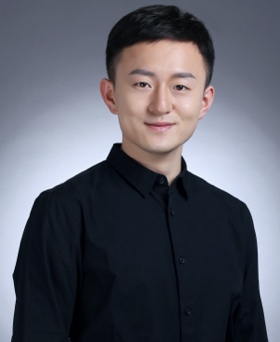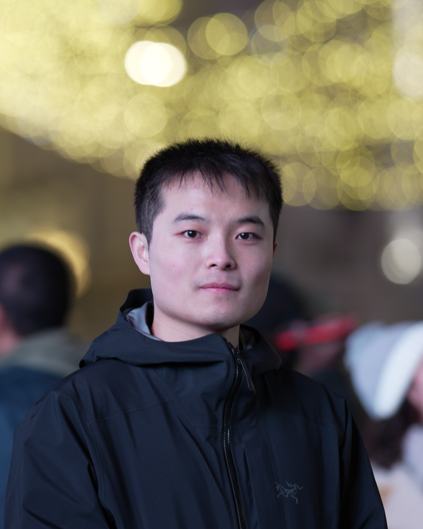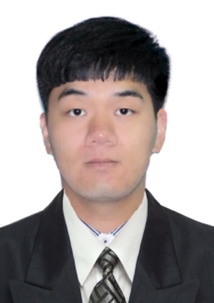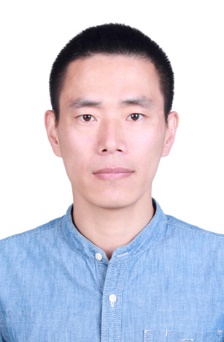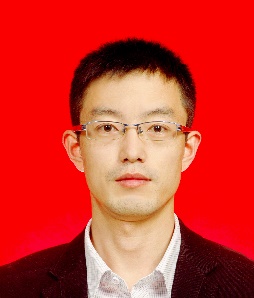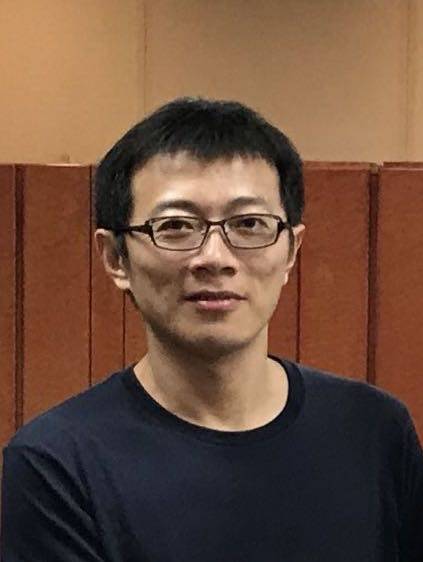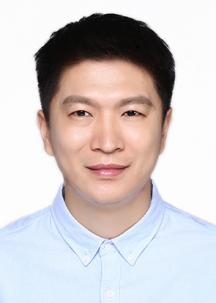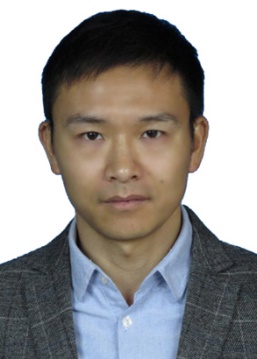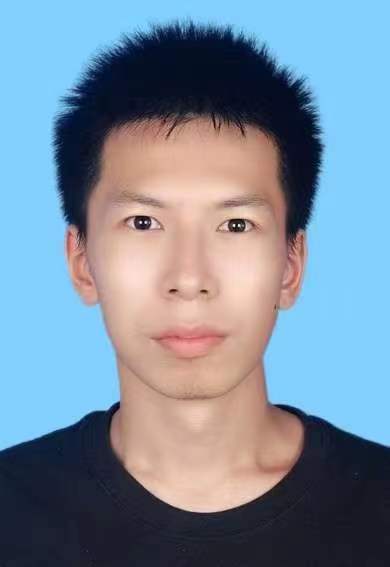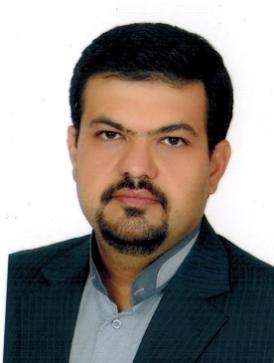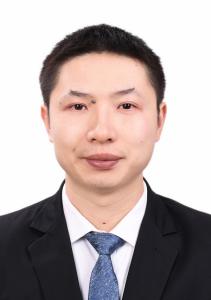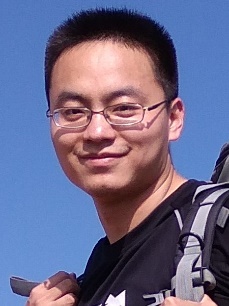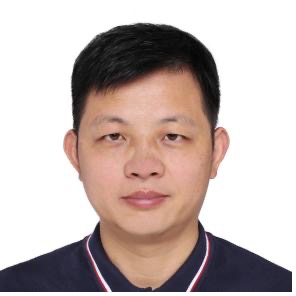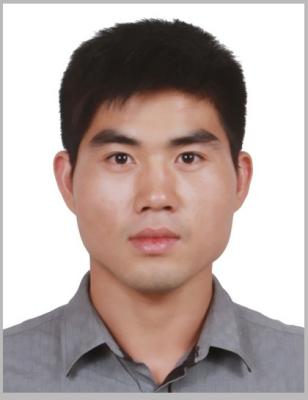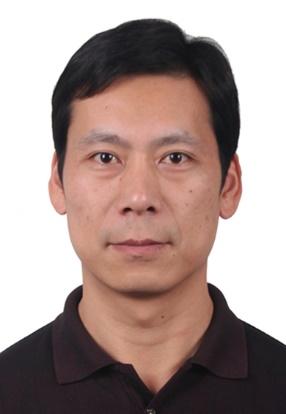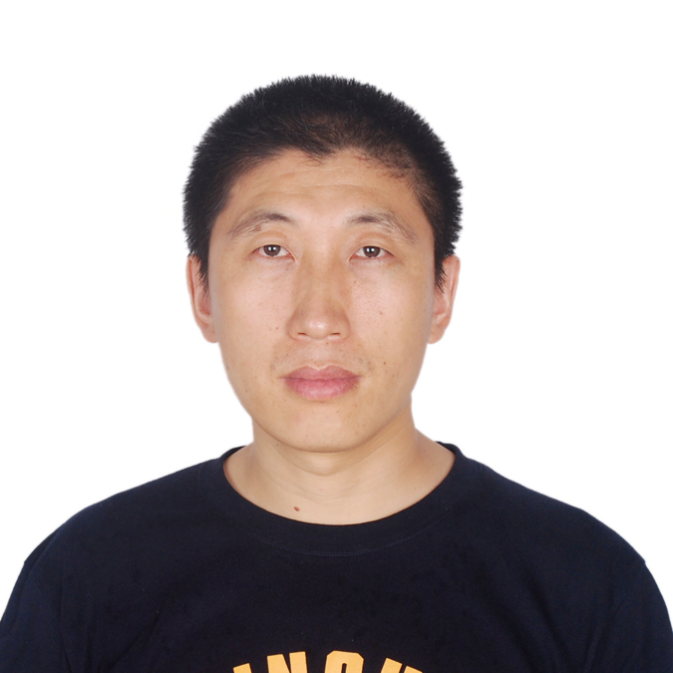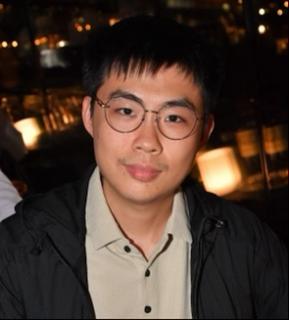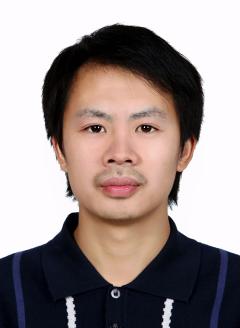Important Dates
Papers submission due:
Aug 25, 2024
Notification of acceptance:
Oct 8, 2024
Registration:
Oct 22, 2024
Conference Date:
Nov 01-03, 2024
Social Media
Workshop 1
+ 查看更多
Workshop title: Secure Integration of Artificial Intelligence (AI) and Autonomous Vehicular Networks
Workshop title: Secure Integration of Artificial Intelligence (AI) and Autonomous Vehicular Networks
Chair: Prof.Zhiquan Liu, Jinan University
Chair: Prof.Zhiquan Liu, Jinan University
Summary:
With the advancement of sensing, communication, and networking, autonomous vehicular networks are expected to play a vital role in a variety of areas, including industry 4.0, smart logistics, smart transportation, and public safety. The application of artificial intelligence (AI) technologies can provide significant benefits for automating sensing, computing, and communication tasks in autonomous vehicular networks.
However, in order to realize real-time perception and autonomous control, AI-enabled autonomous vehicular networks will need to be more complex and heterogeneous than before. AI-enabled autonomous vehicular networks will be extremely challenging in terms of security and privacy due to complex features such as high mobility of nodes, unreliable link connections, vulnerable terminal equipments, limited resources, and heterogeneous topologies. For example, distributed AI models are very important in autonomous vehicular networks with multiple self-organizing vehicles. However, malicious attacks on AI models trained on edge devices are still an important problem to be solved in AI-enabled autonomous vehicular networks.
This workshop specifically focuses on the latest advances, challenges, and approaches to the secure integration of AI and autonomous vehicular networks. We encourage original and high-quality contributions that address both the theoretical and practical aspects of the above challenges.
However, in order to realize real-time perception and autonomous control, AI-enabled autonomous vehicular networks will need to be more complex and heterogeneous than before. AI-enabled autonomous vehicular networks will be extremely challenging in terms of security and privacy due to complex features such as high mobility of nodes, unreliable link connections, vulnerable terminal equipments, limited resources, and heterogeneous topologies. For example, distributed AI models are very important in autonomous vehicular networks with multiple self-organizing vehicles. However, malicious attacks on AI models trained on edge devices are still an important problem to be solved in AI-enabled autonomous vehicular networks.
This workshop specifically focuses on the latest advances, challenges, and approaches to the secure integration of AI and autonomous vehicular networks. We encourage original and high-quality contributions that address both the theoretical and practical aspects of the above challenges.
Keywords: autonomous vehicular networks, artificial intelligence, machine learning, security, privacy, risk assessment, data fusion
Zhiquan Liu is a full professor with the College of Cyber Security, Jinan University. In recent years, he has published more than 80 SCI/EI papers on authoritative journals and conferences, such as IEEE JSAC, IEEE TIFS, IEEE TDSC, IEEE TMC, IEEE TKDE, IEEE TPAMI, IEEE TITS, IEEE IOTJ, IEEE TVT, IEEE TII, IEEE TCC, IEEE Network, Science China Information Sciences, Information Fusion, Information Sciences, IEEE ICWS, IEEE WCNC, ACISP, and Chinese Computer Journal (including more than 40 papers on CCF-A/JCR-1/TOP journals, 4 best papers on international conferences, 2 most popular papers on international journals, and 1 ESI highly cited paper), and has applied for/been authorized more than 100 invention patents and PCT patents. He currently serves as the associate editors of IEEE Internet of Things Journal, IEEE Network, Computer Networks, etc., as well as the editor-in-cheif of Advances in Transportation and Logistics. His homepage is https://www.zqliu.com/.
Workshop 2
+ 查看更多
Workshop title: AI-Driven Healthcare: From Theory to Practice
Workshop title: AI-Driven Healthcare: From Theory to Practice
Chair: Assoc.Prof. Haoxi Zhang,Chengdu University of Information Technology
Chair: Assoc.Prof. Haoxi Zhang,Chengdu University of Information Technology
Summary:
As AI technologies rapidly evolve, their integration into healthcare settings heralds a transformative era with the potential to significantly improve patient outcomes, streamline operations, and amplify the capabilities of healthcare professionals. This workshop is dedicated to exploring the cutting-edge AI technologies that are reshaping healthcare by enhancing patient care, optimizing operations, and empowering healthcare professionals.
We invite leading researchers, practitioners, and policymakers to join us in examining the theoretical advancements, practical applications, and promising future of AI in the healthcare sector. The workshop will cover the following key themes (but is not limited to them):
• Future of AI in Healthcare: Participants will explore state-of-the-art research and trends shaping healthcare's future. Discussions will focus on AI's role in diagnosing diseases earlier, optimizing treatment plans, predicting patient outcomes, and its implications for healthcare delivery.
•Trustworthy AI for Healthcare: This segment will delve into the ethical considerations, importance of data privacy, and strategies for ensuring transparency and accountability. It is crucial for building reliable, ethical AI systems that align with public health goals and maintain patient trust.
•Explainable AI in Healthcare and Medicine: Explainability is vital for clinical acceptance. This theme will cover the importance of developing AI systems whose actions are interpretable by human experts, enhancing transparency and fostering trust among healthcare providers.
•Novel AI Methods and Practices for Healthcare: This new theme will highlight cutting-edge AI methodologies and their current applications within healthcare. It will showcase innovative practices and how they are being implemented to address complex medical challenges, with a focus on emerging technologies such as deep learning, natural language processing, and robotics.
We look forward to engaging discussions, collaborative opportunities, and shared insights that will shape the future of AI in healthcare.
We invite leading researchers, practitioners, and policymakers to join us in examining the theoretical advancements, practical applications, and promising future of AI in the healthcare sector. The workshop will cover the following key themes (but is not limited to them):
• Future of AI in Healthcare: Participants will explore state-of-the-art research and trends shaping healthcare's future. Discussions will focus on AI's role in diagnosing diseases earlier, optimizing treatment plans, predicting patient outcomes, and its implications for healthcare delivery.
•Trustworthy AI for Healthcare: This segment will delve into the ethical considerations, importance of data privacy, and strategies for ensuring transparency and accountability. It is crucial for building reliable, ethical AI systems that align with public health goals and maintain patient trust.
•Explainable AI in Healthcare and Medicine: Explainability is vital for clinical acceptance. This theme will cover the importance of developing AI systems whose actions are interpretable by human experts, enhancing transparency and fostering trust among healthcare providers.
•Novel AI Methods and Practices for Healthcare: This new theme will highlight cutting-edge AI methodologies and their current applications within healthcare. It will showcase innovative practices and how they are being implemented to address complex medical challenges, with a focus on emerging technologies such as deep learning, natural language processing, and robotics.
We look forward to engaging discussions, collaborative opportunities, and shared insights that will shape the future of AI in healthcare.
Keywords: Artificial Intelligence in Healthcare, Medical Imaging, Biomedical Data Analysis, Explainable AI, Healthcare Innovation
Haoxi Zhang is an Associate Professor at Chengdu University of Information Technology, China. He holds a Ph.D. in Knowledge Engineering from the University of Newcastle, Australia (2013), and a Master’s in Software Engineering from the University of Electronic Science and Technology of China. Prof. Zhang's research intricately melds artificial intelligence with healthcare, focusing on the development of advanced computational models and machine learning algorithms for biomedical data analysis, particularly medical imaging and AIoT for healthcare, to enhance medical decision-making. His work emphasizes developing multimodal learning algorithms to integrate multi-scale biomedical data for comprehensive disease management, constructing real-world learning systems for creating robust, trustworthy representations from imperfect medical data, and innovating causality-driven learning algorithms to boost interpretability and safety in healthcare applications. Prof. Zhang has published over 40 refereed papers in leading journals and conferences.
Workshop 3
+ 查看更多
Workshop title: Big Data & Artificial Intelligence with Applications
Workshop title: Big Data & Artificial Intelligence with Applications
Chair: Prof. Shan Liu,Communication University of China
Chair: Prof. Shan Liu,Communication University of China
Summary:
With the rapid development of science and technology and the rapid rise of Internet information technology, people get more and more effective information from the Internet, and people's life has been greatly facilitated. With the gradual innovation and development of information technology, artificial intelligence has been paid more attention and applied in people's life. Artificial intelligence technology is developed by analyzing the law of people's activities through intelligent technology. It has a great degree of application function in robots, control systems and simulation. In artificial intelligence technology, the application of big data technology can analyze the potential law of data from a large amount of data, to summarize a certain development law, and then promote the further development of artificial intelligence.
This workshop aims to bring together the latest research progress of academic and industry researchers, such as big data science and foundations, big data infrastructure, big data management, big data search and mining, big data learning and analytics, data ecosystem, big data applications, artificial intelligence and technology, natural language processing, expert systems, multi-agent systems, knowledge engineering, neural network theory and architectures, artificial intelligence in modeling and simulation, pattern recognition, complex system, intelligent system, intelligent control, speech recognition, and synthesis, machine translation, computer perception, machine learning, intelligent robot, image processing and computer vision and so on. We encourage prospective authors to submit related distinguished research papers on the subject of big data and artificial intelligence.
This workshop aims to bring together the latest research progress of academic and industry researchers, such as big data science and foundations, big data infrastructure, big data management, big data search and mining, big data learning and analytics, data ecosystem, big data applications, artificial intelligence and technology, natural language processing, expert systems, multi-agent systems, knowledge engineering, neural network theory and architectures, artificial intelligence in modeling and simulation, pattern recognition, complex system, intelligent system, intelligent control, speech recognition, and synthesis, machine translation, computer perception, machine learning, intelligent robot, image processing and computer vision and so on. We encourage prospective authors to submit related distinguished research papers on the subject of big data and artificial intelligence.
Keywords: Big Data, Artificial Intelligence, Data Mining, Data Science, Natural Language Processing, Expert Systems, Multi-Agent Systems, Knowledge Engineering, Neural Network, Pattern Recognition, Complex System, Intelligent System, Intelligent Control, Speech Recognition and Synthesis, Machine Translation, Computer Perception, Machine Learning, Intelligent Robot, Image Processing and Computer Vision
Shan Liu is Professor and Chair of the Department of Intelligent Science at the Communication University of China. She received her Ph.D. degree in Electrical Engineering from Texas A&M University, College Station, Texas, USA, in 2013. She is a committee member of the Chinese Association for Artificial Intelligence, the Chinese Institute of Electronics, the Beijing Society of Image and Graphics, the Association of Fundamental Computing Education in Chinese Universities, the China Automation Society, the National Alliance of Artificial Intelligence and Big Data Innovation Industry in Colleges and Universities, and the Institute of Electrical and Electronics Engineers. She has served as a peer reviewer for a series of IEEE Transactions and other high-level SCI journals. Her current research areas include complex networks, intelligent tags, big data, and artificial intelligence. Prof. Liu has been invited to the University of California, the National Laboratory of the United States, and other countries such as France and Belgium to give lectures and speeches and has gained broad academic influence. She has presided over more than 30 research projects, such as the National Natural Science Foundation of China, the National Social Science Foundation of China, and the National Key Research and Development Program of China, published more than 100 high-level academic papers, and received multiple best paper awards.
Workshop 4
+ 查看更多
Workshop title: Big Data and Decision Intelligence Theory and Technology
Workshop title: Big Data and Decision Intelligence Theory and Technology
Chair: Prof. Xin Nie,Wuhan Institute of Technology, China
Chair: Prof. Xin Nie,Wuhan Institute of Technology, China
Summary:
In the context of the rapid development of global informatization, big data has become a strategic resource. The frequency, breadth, and complexity of decision-making activities in various industries are fundamentally different from before. The uncertainty factors in the decision-making process increase, and the difficulty of decision-making analysis continues to increase. Traditional data analysis methods and decision-making based on human experience are no longer able to meet the decision-making needs of the big data era. Big data-driven intelligent decision-making will become the main theme of decision-making research. We need to combine the characteristics of big data and analyze some potential research directions from aspects such as intelligent decision support systems, uncertainty processing, information fusion, correlation analysis, and incremental analysis. As a rapidly developing open discipline, big data intelligent decision-making still requires more research and practice in terms of connotation and extension, model theory, technical methods, and implementation strategies.
Keywords: Big Data, Intelligent Decision-making, Information Fusion, Incremental Learning
Xin Nie is a professor and master's supervisor at the School of Computer Science and Engineering, Wuhan Institute of Technology. His research interests include intelligent optimization algorithms, machine learning, and other fields. He is currently the director of the Software Engineering Teaching and Research Office, a member of the China Computer Federation, a member of the Chinese Association for Artificial Intelligence, and a committee of the Chinese Institute of Command and Control.
Workshop 5
+ 查看更多
Workshop title: Network Science and Data Mining
Workshop title: Network Science and Data Mining
Chair: Prof. Xiaoyang Liu,Chongqing University of Technology, China
Chair: Prof. Xiaoyang Liu,Chongqing University of Technology, China
Summary:
This workshop welcomes theoretical, simulation and experimental contributions in the complex systems and complex networks. Areas of interest include, but are not limited to, the following topics:Link prediction;Information dissemination and epidemiological information dissemination;Community detection;Network mining;Methods for the analysis of network structures;Complex network modeling, structure and function analysis;Dynamics on complex networks: synchronization, propagation, game playing, etc.Network control, multi-agent system control and stability;Biological networks, systems biology, biological dynamic systems, etc.Network analysis of social, economic and technical networks;Basic theory and application of network security;Complex network and big data analysis, artificial intelligence computing;Complex network applications: link prediction and recommendation algorithms, traffic, routing, etc;Swarm dynamics, human behavior dynamics;The intersection of complex systems with AI and other disciplines and their applications; Fractional networks, higher-order networks and dynamics analysis.
Keywords: Complex network; Social network; Machine learning; Deep learning; Data mining
Dr. Xiaoyang Liu is a full professor of Computer Science at the Chongqing University of Technology. He has won the second prize of the National Teaching Achievement Award. He is a high-level innovative talent of Elite Plan of Banan District. He received Ph.D. degree in communication and information systems from Northwestern Polytechnical University. He has completed his Postdoctoral fellow in Chongqing University and The University of Alabama, USA. He is a Distinguished Member of CCF, and a member of IEEE and ACM. His main research interests are in the areas of social network, information diffusion, complex network, data mining, computer application. He has presided research on more than 50 national and provincial projects such as the National Natural Science Foundation, the National Social Science Foundation, Science and Technology projects of the National Bureau of Statistics and the Ministry of Education. In IEEE Transactions on Network Science and Engineering, IEEE Transactions on Computational Social Systems, Nonlinear Dynamics, Applied Intelligence and other important journals and conferences at home and abroad more than 100 academic papers (SCI included); more than 40 national invention patents have been authorized. He has published 4 academic monographs.
Workshop 6
+ 查看更多
Workshop title:Applied Artificial Intelligence Approach: Intelligent Data Processing and Mining with Online Behaviors
Workshop title:Applied Artificial Intelligence Approach: Intelligent Data Processing and Mining with Online Behaviors
Chair 1:Assist Prof. Yifan Zhu,Beijing University of Posts and Telecommunications
Chair 1:Assist Prof. Yifan Zhu,Beijing University of Posts and Telecommunications
Chair 2:Dr. Kaize Shi, University of Technology Sydney
Summary:
From the point of view of information transmission, online activities have greatly extended the distance of communication while inevitably losing information of various modes. That is, although visual, auditory and other information can be transmitted in collaboration, there are still studies showing that a lot of potential perceptual information has not been encoded in online platforms well. Furthermore, cognitive process of traditional interactions has also been changed, where online users acquire knowledge in a more personalized, customized, and behavioral approach. However, due to the lack of learning paradigms in these new situations, current models and platforms generally face difficulties such as cognitive trek and high dropout rate. Therefore, it is urgent to invent more comprehensive, personalized, and explainable AI methods to re-understand patterns and cognitive processes of user profiling after the change.
In recent years, the advance of deep representation learning and other AI methods has brought a new wave of upsurge to this problem from many aspects, such as graph neural network, pretrained language and multimodal model, deep reinforcement learning, etc. In addition to the incredible achievements have been made, scientists are still working towards to reveal the essence of different learning process. From the perspective of AI, these intelligence-based approach provides probability to make AI-based systems not only intelligent but also knowledgeable, which is also a key towards to explainable Artificial Intelligence (XAI). Furthermore, the machine intelligence-based models are also help to recognize psychological and cognitive patterns of users in their interaction process. We believe the fundamental innovation by AI could immensely promotes the understanding of user’s behavior, emotion, attention, and knowledge acquisition. Thus, we hope to call research articles that focusing on Intelligent data processing and mining with online behaviors from the view of AI and machine learning.
The proposed special issue has the following sub-topics:
AI theory for behavioral analysis technology:
- Graph and network theory for learning process
- New representation learning paradigms
- Explainable AI and its mechanism
- Contrastive analysis between machine learning and human learning
- Machine-intelligence driven psychological and cognitive pattern recognition
Intelligence driven methods for online behavioral data mining:
- Computer version-based user attention and emotion tracing.
- Multi-modal, multi-sourced heterogeneous information fusion
- Intelligence guided reasoning and searching on knowledge concepts
- AI-powered learning object generation
- Recommendation and retrieval for online objects
- Knowledge tracing technics
- Neural network structure for application
- Explainable AI for user profiling
Applications with intelligence driven technology
- Domain and subject knowledge-specific application
- Using intelligent tools for Large-scale application
- New human-computer interaction approaches
- humanities art driven by AI for intelligent simulation and digital creativity
Survey on above topics
Keywords:
Online Mining, Behaviour Mining, Intelligent Information Processing
Yifan Zhu is currently an assistant professor at Beijing University of Posts and Telecommunications. Before that, he was a postdoctor with Department of Computer Science and Technology, Tsinghua University from 2021 to 2023. Yifan Zhu received the Ph.D. degree from the School of Computer Science and Technology, Beijing Institute of Technology in 2021, and the bachelor degree from Computer School, Beijing Information Science & Technology University, in 2016. His research interests include graph mining, recommendation systems, Large Language Models, etc. He served as an editorial board member of Information Fusion, the guest editor of Wireless Communications and Mobile Computing and International Journal of Distributed Sensor Networks. He was the session chair of BESC 2024 and IEEE-ISPA 2019, and is the PC member of NeuraIPS’24, MM’24, WWW ‘24, AAAI ‘22-25, ECML-PKDD ’22 and IJCAI’23-24. He also received the best paper runner-up award of ECML-PKDD 2023.
Kaize Shi is with the Data Science and Machine Intelligence Lab, University of Technology Sydney. He has PhD degrees in computer science and computer systems, which are from the Beijing Institute of Technology, China, and the University of Technology Sydney, Australia. His research interests include natural language generation, social computing, cyber-physical-social systems, meteorological knowledge services, intelligent transportation, and artificial intelligence technology. He is the associate editor of IEEE Transactions on Computational Social Systems (IEEE TCSS) and academic editor of PeerJ Computer Science and Wireless Communications and Mobile Computing. He also served as a guest editor for the International Journal of Distributed Sensor Networks, and as a reviewer for the IEEE Transactions on Intelligent Transportation Systems, IEEE Internet of Things Journal, etc. He served as a program committee member for conferences of ACL, EMNLP, NeurIPS, SIGKDD, ICDM, etc. He is a member of the Artificial Intelligence Technical Committee of the China Meteorological Service Association.
Chair 2:Dr. Kaize Shi, University of Technology Sydney
Summary:
From the point of view of information transmission, online activities have greatly extended the distance of communication while inevitably losing information of various modes. That is, although visual, auditory and other information can be transmitted in collaboration, there are still studies showing that a lot of potential perceptual information has not been encoded in online platforms well. Furthermore, cognitive process of traditional interactions has also been changed, where online users acquire knowledge in a more personalized, customized, and behavioral approach. However, due to the lack of learning paradigms in these new situations, current models and platforms generally face difficulties such as cognitive trek and high dropout rate. Therefore, it is urgent to invent more comprehensive, personalized, and explainable AI methods to re-understand patterns and cognitive processes of user profiling after the change.
In recent years, the advance of deep representation learning and other AI methods has brought a new wave of upsurge to this problem from many aspects, such as graph neural network, pretrained language and multimodal model, deep reinforcement learning, etc. In addition to the incredible achievements have been made, scientists are still working towards to reveal the essence of different learning process. From the perspective of AI, these intelligence-based approach provides probability to make AI-based systems not only intelligent but also knowledgeable, which is also a key towards to explainable Artificial Intelligence (XAI). Furthermore, the machine intelligence-based models are also help to recognize psychological and cognitive patterns of users in their interaction process. We believe the fundamental innovation by AI could immensely promotes the understanding of user’s behavior, emotion, attention, and knowledge acquisition. Thus, we hope to call research articles that focusing on Intelligent data processing and mining with online behaviors from the view of AI and machine learning.
The proposed special issue has the following sub-topics:
In recent years, the advance of deep representation learning and other AI methods has brought a new wave of upsurge to this problem from many aspects, such as graph neural network, pretrained language and multimodal model, deep reinforcement learning, etc. In addition to the incredible achievements have been made, scientists are still working towards to reveal the essence of different learning process. From the perspective of AI, these intelligence-based approach provides probability to make AI-based systems not only intelligent but also knowledgeable, which is also a key towards to explainable Artificial Intelligence (XAI). Furthermore, the machine intelligence-based models are also help to recognize psychological and cognitive patterns of users in their interaction process. We believe the fundamental innovation by AI could immensely promotes the understanding of user’s behavior, emotion, attention, and knowledge acquisition. Thus, we hope to call research articles that focusing on Intelligent data processing and mining with online behaviors from the view of AI and machine learning.
The proposed special issue has the following sub-topics:
AI theory for behavioral analysis technology:
- Graph and network theory for learning process
- New representation learning paradigms
- Explainable AI and its mechanism
- Contrastive analysis between machine learning and human learning
- Machine-intelligence driven psychological and cognitive pattern recognition
Intelligence driven methods for online behavioral data mining:
- Computer version-based user attention and emotion tracing.
- Multi-modal, multi-sourced heterogeneous information fusion
- Intelligence guided reasoning and searching on knowledge concepts
- AI-powered learning object generation
- Recommendation and retrieval for online objects
- Knowledge tracing technics
- Neural network structure for application
- Explainable AI for user profiling
Applications with intelligence driven technology
- Domain and subject knowledge-specific application
- Using intelligent tools for Large-scale application
- New human-computer interaction approaches
- humanities art driven by AI for intelligent simulation and digital creativity
Survey on above topics
Keywords: Online Mining, Behaviour Mining, Intelligent Information Processing
Yifan Zhu is currently an assistant professor at Beijing University of Posts and Telecommunications. Before that, he was a postdoctor with Department of Computer Science and Technology, Tsinghua University from 2021 to 2023. Yifan Zhu received the Ph.D. degree from the School of Computer Science and Technology, Beijing Institute of Technology in 2021, and the bachelor degree from Computer School, Beijing Information Science & Technology University, in 2016. His research interests include graph mining, recommendation systems, Large Language Models, etc. He served as an editorial board member of Information Fusion, the guest editor of Wireless Communications and Mobile Computing and International Journal of Distributed Sensor Networks. He was the session chair of BESC 2024 and IEEE-ISPA 2019, and is the PC member of NeuraIPS’24, MM’24, WWW ‘24, AAAI ‘22-25, ECML-PKDD ’22 and IJCAI’23-24. He also received the best paper runner-up award of ECML-PKDD 2023.
Kaize Shi is with the Data Science and Machine Intelligence Lab, University of Technology Sydney. He has PhD degrees in computer science and computer systems, which are from the Beijing Institute of Technology, China, and the University of Technology Sydney, Australia. His research interests include natural language generation, social computing, cyber-physical-social systems, meteorological knowledge services, intelligent transportation, and artificial intelligence technology. He is the associate editor of IEEE Transactions on Computational Social Systems (IEEE TCSS) and academic editor of PeerJ Computer Science and Wireless Communications and Mobile Computing. He also served as a guest editor for the International Journal of Distributed Sensor Networks, and as a reviewer for the IEEE Transactions on Intelligent Transportation Systems, IEEE Internet of Things Journal, etc. He served as a program committee member for conferences of ACL, EMNLP, NeurIPS, SIGKDD, ICDM, etc. He is a member of the Artificial Intelligence Technical Committee of the China Meteorological Service Association.
Workshop 7
+ 查看更多
Workshop title:Advancing AIGC: Faithful Generation and Trustworthy Identification
Workshop title:Advancing AIGC: Faithful Generation and Trustworthy Identification
Chair 1:Prof. Mingliang Gao,Shandong University of Technology
Chair 1:Prof. Mingliang Gao,Shandong University of Technology
Chair 2:Dr Qilei Li, Queen Mary University of London
Summary:
This workshop aims to gather experts and practitioners to explore the advancements, challenges, and ethical considerations in Artificial Intelligence Generated Content (AIGC), focusing on faithful content generation and identification to mitigate negative societal impacts. Key areas of discussion will include algorithms for faithful generation using diffusion models and GANs, ensuring high-quality and accurate outputs across text, vision, and multimodal content. Additionally, we will explore algorithms for identifying AI-generated content to reduce misinformation and other negative effects on society. The workshop will feature keynote presentations, fruitful discussions, and interactive sessions with hands-on activities. Participants will gain insights into state-of-the-art generative models, techniques for grounding AI-generated content in real-world contexts, and methods to enhance privacy and ethical considerations. The target audience includes AI researchers, developers, academicians, industry professionals, and students interested in AIGC. Join us to explore the future of AIGC, address its challenges, and leverage opportunities for responsible AI development.
Keywords:
Artificial Intelligence Generated Content, Misinformation Generation, Misinformation Detection
Mingliang Gao received his PhD degree in Communication and Information Systems from Sichuan University. He is an IEEE Senior Member. He is now an associate professor at the Shandong University of Technology. He was a visiting lecturer at the University of British Columbia during 2018-2019.
He established the Brighten Vision Group and enjoyed immensely working with students and researchers. He has been the principal investigator for a variety of research funding, including the National Natural Science Foundation, China Postdoctoral Foundation, National Key Research Development Project, etc. His research interests include computer vision, machine learning, and intelligent optimal control. He has published over 100 journal/conference papers in IEEE, Springer, Elsevier, and Wiley, which has been cited for more than 1400 times.
Qilei Li is a post-doctoral researcher at Queen Mary University of London. He obtained an Ph.D. in Computer Science at Queen Mary University of London in 2024, under the supervision of Prof. Shaogang (Sean) Gong, and an M.S. degree from Sichuan University in 2020. From June 2022 to April 2024, he worked as a machine learning scientist at Veritone Inc, where he focused on developing a scalable person search framework for retrieving individuals at different locations and times, as captured by various cameras. His current research interests lie in privacy-aware multimodal machine learning, with a particular emphasis on learning domain-invariant knowledge representation from multimodal data captured in diverse environments. His research outcome has been recognized as ESI Highly Cited Paper (Top 1%). Additionally, he serves as an evaluator for the European Laboratory for Learning and Intelligent Systems (ELLIS) PhD Program, and as a reviewer for numerous journals and conferences, including IEEE TPAMI, IEEE TIP, IEEE TNNLS, IEEE TCSVT, IEEE TAI, and Information Fusion.
Chair 2:Dr Qilei Li, Queen Mary University of London
Summary:
This workshop aims to gather experts and practitioners to explore the advancements, challenges, and ethical considerations in Artificial Intelligence Generated Content (AIGC), focusing on faithful content generation and identification to mitigate negative societal impacts. Key areas of discussion will include algorithms for faithful generation using diffusion models and GANs, ensuring high-quality and accurate outputs across text, vision, and multimodal content. Additionally, we will explore algorithms for identifying AI-generated content to reduce misinformation and other negative effects on society. The workshop will feature keynote presentations, fruitful discussions, and interactive sessions with hands-on activities. Participants will gain insights into state-of-the-art generative models, techniques for grounding AI-generated content in real-world contexts, and methods to enhance privacy and ethical considerations. The target audience includes AI researchers, developers, academicians, industry professionals, and students interested in AIGC. Join us to explore the future of AIGC, address its challenges, and leverage opportunities for responsible AI development.
Keywords: Artificial Intelligence Generated Content, Misinformation Generation, Misinformation Detection
Mingliang Gao received his PhD degree in Communication and Information Systems from Sichuan University. He is an IEEE Senior Member. He is now an associate professor at the Shandong University of Technology. He was a visiting lecturer at the University of British Columbia during 2018-2019.
He established the Brighten Vision Group and enjoyed immensely working with students and researchers. He has been the principal investigator for a variety of research funding, including the National Natural Science Foundation, China Postdoctoral Foundation, National Key Research Development Project, etc. His research interests include computer vision, machine learning, and intelligent optimal control. He has published over 100 journal/conference papers in IEEE, Springer, Elsevier, and Wiley, which has been cited for more than 1400 times.
He established the Brighten Vision Group and enjoyed immensely working with students and researchers. He has been the principal investigator for a variety of research funding, including the National Natural Science Foundation, China Postdoctoral Foundation, National Key Research Development Project, etc. His research interests include computer vision, machine learning, and intelligent optimal control. He has published over 100 journal/conference papers in IEEE, Springer, Elsevier, and Wiley, which has been cited for more than 1400 times.
Qilei Li is a post-doctoral researcher at Queen Mary University of London. He obtained an Ph.D. in Computer Science at Queen Mary University of London in 2024, under the supervision of Prof. Shaogang (Sean) Gong, and an M.S. degree from Sichuan University in 2020. From June 2022 to April 2024, he worked as a machine learning scientist at Veritone Inc, where he focused on developing a scalable person search framework for retrieving individuals at different locations and times, as captured by various cameras. His current research interests lie in privacy-aware multimodal machine learning, with a particular emphasis on learning domain-invariant knowledge representation from multimodal data captured in diverse environments. His research outcome has been recognized as ESI Highly Cited Paper (Top 1%). Additionally, he serves as an evaluator for the European Laboratory for Learning and Intelligent Systems (ELLIS) PhD Program, and as a reviewer for numerous journals and conferences, including IEEE TPAMI, IEEE TIP, IEEE TNNLS, IEEE TCSVT, IEEE TAI, and Information Fusion.
Workshop 8
+ 查看更多
Workshop title:Application of Big Data and Artificial Intelligence in Smart Grid
Workshop title:Application of Big Data and Artificial Intelligence in Smart Grid
Chair 1:Assoc.Prof. Lei Zhang,The China Three Gorges University
Chair 1:Assoc.Prof. Lei Zhang,The China Three Gorges University
Chair 2:Dr. Ke Zhu, The China Three Gorges University
Summary:
Smart grid is undergoing significant reform with the purpose of enhancing reliable operation, reducing computational cost and benefiting the customer. With the rapid evolvement of big data and artificial intelligence (AI) techniques,there is no doubt these techniques can provide a bright future to achieve the mentioned aims and bring the power system into a new era. The use of Big Data and AI in electricity grids is also crucial for the transition to a low-carbon economy due to their ability to integrate renewable energy sources efficiently and optimize grid operation for combating climate change and achieving sustainable energy. In recent years, we have also seen a growing number of software companies are bringing AI products to the energy industry. In this workshop, we are soliciting papers for authors to present versatile applications of Big data and AI techniques in power system operation, control, planning, and so on with the aim to transforming the power grid.
Keywords:
Big Data, Artificial Intelligence, Smart Grid, Renewable Energy
Dr. Lei Zhang received the Ph.D. degree from the Huazhong University of Science and Technology (HUST), Hubei, in 2017. He is currently working with the College of Electrical Engineering and New Energy, China Three Gorges University. His current research interests include power system operation and control, power system frequency stability, renewable energy, and smart grids. He has presided one National Natural Science Foundation of China (NSFC), one Natural Science Foundation of Hubei Province, and one major special project of Artificial Intelligence in Hubei Province. Furthermore, he has been a main researcher in two national critical R&D projects and one major project of the NSFC. In the past five years, He has published more than 40 EI and SCI papers, and has been granted 8 invention patents and participated in the preparation of 2 standards. Dr. Zhang is a member of China Electrotechnical Society Young Scholar Committee, a member of Chinese Society for Electrical Engineering, and an executive director of the Dynamic Power Systems Sub-Committee of the IEEE PES Technical Committee (China).
Dr. Ke Zhu received his Ph.D. degree in Electrical Engineering from the University of Hong Kong in 2018 and continued his academic work as a Post-Doctoral Fellow with the University of Hong Kong between 2018 and 2019. Afterward, he has joined the industry to foster technology innovation for building a Smart Grid. His research interest lies in how to develop the autonomous Internet-of-Things (A-IoT) in the energy system (e.g., Smart Gird and Buildings). He has three patents (two U.S. – one granted and one pending, and one Chinese pending) and has more than 20 IEEE journal/conference papers. Dr. Zhu is a member of the IEEE Magnetics Society (Hong Kong Chapter) and has assisted a series of conference organizations for IEEE Magnetics Society.
Chair 2:Dr. Ke Zhu, The China Three Gorges University
Summary:
Smart grid is undergoing significant reform with the purpose of enhancing reliable operation, reducing computational cost and benefiting the customer. With the rapid evolvement of big data and artificial intelligence (AI) techniques,there is no doubt these techniques can provide a bright future to achieve the mentioned aims and bring the power system into a new era. The use of Big Data and AI in electricity grids is also crucial for the transition to a low-carbon economy due to their ability to integrate renewable energy sources efficiently and optimize grid operation for combating climate change and achieving sustainable energy. In recent years, we have also seen a growing number of software companies are bringing AI products to the energy industry. In this workshop, we are soliciting papers for authors to present versatile applications of Big data and AI techniques in power system operation, control, planning, and so on with the aim to transforming the power grid.
Keywords: Big Data, Artificial Intelligence, Smart Grid, Renewable Energy
Dr. Lei Zhang received the Ph.D. degree from the Huazhong University of Science and Technology (HUST), Hubei, in 2017. He is currently working with the College of Electrical Engineering and New Energy, China Three Gorges University. His current research interests include power system operation and control, power system frequency stability, renewable energy, and smart grids. He has presided one National Natural Science Foundation of China (NSFC), one Natural Science Foundation of Hubei Province, and one major special project of Artificial Intelligence in Hubei Province. Furthermore, he has been a main researcher in two national critical R&D projects and one major project of the NSFC. In the past five years, He has published more than 40 EI and SCI papers, and has been granted 8 invention patents and participated in the preparation of 2 standards. Dr. Zhang is a member of China Electrotechnical Society Young Scholar Committee, a member of Chinese Society for Electrical Engineering, and an executive director of the Dynamic Power Systems Sub-Committee of the IEEE PES Technical Committee (China).
Dr. Ke Zhu received his Ph.D. degree in Electrical Engineering from the University of Hong Kong in 2018 and continued his academic work as a Post-Doctoral Fellow with the University of Hong Kong between 2018 and 2019. Afterward, he has joined the industry to foster technology innovation for building a Smart Grid. His research interest lies in how to develop the autonomous Internet-of-Things (A-IoT) in the energy system (e.g., Smart Gird and Buildings). He has three patents (two U.S. – one granted and one pending, and one Chinese pending) and has more than 20 IEEE journal/conference papers. Dr. Zhu is a member of the IEEE Magnetics Society (Hong Kong Chapter) and has assisted a series of conference organizations for IEEE Magnetics Society.
Workshop 9
+ 查看更多
Workshop title:Machine learning based algorithms for image restoration and enhancement
Workshop title:Machine learning based algorithms for image restoration and enhancement
Chair 1:Dr.He Jiang,China University of Mining and Technology
Chair 1:Dr.He Jiang,China University of Mining and Technology
Chair 2:Dr. Boming Song, Xuzhou Medical University, China
Summary:
In recent years, machine learning has revolutionized the field of image restoration and enhancement. These algorithms, trained on vast datasets, are capable of restoring degraded images and enhancing their quality in a variety of ways. From denoising noisy images to super-resolution of low-resolution images, machine learning techniques have proven to be highly effective. Deep learning architectures, particularly convolutional neural networks (CNNs), have played a pivotal role in this domain. They are able to learn complex features from images and utilize these features to restore and enhance images. State-of-the-art models such as generative adversarial networks (GANs) have further pushed the boundaries of image restoration, producing visually stunning results. The applications of these algorithms are vast, ranging from medical imaging to surveillance systems. They not only improve the visual quality of images but also enhance their utility for further analysis and processing. With continuous advancements in machine learning, we can expect even more powerful algorithms for image restoration and
enhancement in the future.
Keywords:
Image Restoration, Super Resolution, Enhancement, Denoising, Dehazing
He Jiang is a PhD graduate from Shanghai Jiao tong University, Master's supervisor, and Young Science and Technology Talent of Jiangsu Province. Up to now, he has published more than 40 papers in JCR Q1/Q2 and other well-known journals. He has host or participated in 6 national projects, 3 provincial projects and more than 10 enterprise projects. Meanwhile, he serves as a reviewer for journals and conferences such as TMM, TCSVT, TII, CVPR, ICASSP, ICME, etc., and as a session chair of IOTCIT 2024, ICCBDAI 2023/2024, and CISP 2024. In addition, he has received two international conference best paper awards and SCI Journal Distinguished Reviewer Award.
Boming Song, graduated from the School of Information and Control Engineering, China University of Mining and Technology, and obtained his Ph.D. in 2020. He was a visiting scholar at the School of Electric, Electronic and Computing Engineering, University of Western Australia. He is a member of the Jiangsu Rehabilitation Specialist Alliance. His research areas include action recognition, action quality assessment, and rehabilitation intelligent assistance systems. He has hosted one General Program of the Basic Science Foundation of Higher Education Institution in Jiangsu Province and participated in one National Natural Science Foundation project. Up to now, he has published over 10 papers in JCR Q1/Q2 journals, and CCF B international conferences.
Chair 2:Dr. Boming Song, Xuzhou Medical University, China
Summary:
In recent years, machine learning has revolutionized the field of image restoration and enhancement. These algorithms, trained on vast datasets, are capable of restoring degraded images and enhancing their quality in a variety of ways. From denoising noisy images to super-resolution of low-resolution images, machine learning techniques have proven to be highly effective. Deep learning architectures, particularly convolutional neural networks (CNNs), have played a pivotal role in this domain. They are able to learn complex features from images and utilize these features to restore and enhance images. State-of-the-art models such as generative adversarial networks (GANs) have further pushed the boundaries of image restoration, producing visually stunning results. The applications of these algorithms are vast, ranging from medical imaging to surveillance systems. They not only improve the visual quality of images but also enhance their utility for further analysis and processing. With continuous advancements in machine learning, we can expect even more powerful algorithms for image restoration and
enhancement in the future.
Keywords: Image Restoration, Super Resolution, Enhancement, Denoising, Dehazing
He Jiang is a PhD graduate from Shanghai Jiao tong University, Master's supervisor, and Young Science and Technology Talent of Jiangsu Province. Up to now, he has published more than 40 papers in JCR Q1/Q2 and other well-known journals. He has host or participated in 6 national projects, 3 provincial projects and more than 10 enterprise projects. Meanwhile, he serves as a reviewer for journals and conferences such as TMM, TCSVT, TII, CVPR, ICASSP, ICME, etc., and as a session chair of IOTCIT 2024, ICCBDAI 2023/2024, and CISP 2024. In addition, he has received two international conference best paper awards and SCI Journal Distinguished Reviewer Award.
Boming Song, graduated from the School of Information and Control Engineering, China University of Mining and Technology, and obtained his Ph.D. in 2020. He was a visiting scholar at the School of Electric, Electronic and Computing Engineering, University of Western Australia. He is a member of the Jiangsu Rehabilitation Specialist Alliance. His research areas include action recognition, action quality assessment, and rehabilitation intelligent assistance systems. He has hosted one General Program of the Basic Science Foundation of Higher Education Institution in Jiangsu Province and participated in one National Natural Science Foundation project. Up to now, he has published over 10 papers in JCR Q1/Q2 journals, and CCF B international conferences.
Workshop 10
+ 查看更多
Workshop title:The Theory and Application of Machine Vision in the Internet of Things
Workshop title:The Theory and Application of Machine Vision in the Internet of Things
Chair 1:Prof. Ming-shan Xie,Guizhou University
Chair 1:Prof. Ming-shan Xie,Guizhou University
Chair 2: Assoc.Prof. Zhen Ma, Guizhou University,and Guiyang Institute of Information Science and Technology
Summary:
With the continuous progress and rapid development of science and technology, machine vision technology in the Internet of things has made significant progress. In the field of industrial manufacturing, machine vision can be used to detect product defects, identify and track objects and other tasks. In the medical field, machine vision can be used for medical image diagnosis, surgical assistance and so on. In the field of intelligent transportation, machine vision can be used for traffic monitoring, vehicle recognition and so on. In addition, machine vision can also be applied to agriculture, military, logistics, education and many other fields.
This also brings new challenges. The demand for large-scale image data processing and storage is far more than ever before, which requires machine vision technology to find a balance between efficiency and scalability. In addition, the heterogeneity of images and recognition objects, the complexity and variability of the environment and other factors will bring some challenges to the accuracy and efficiency of machine vision.
This workshop pays special attention to the latest progress, challenges and methods of machine vision technology in the Internet of things. We encourage innovative and high-quality contributions to the theory and application of these challenges.
Keywords:
Internet of things,Machine vision,Large-scale image data processing
Ming-shan Xie, male, doctoral, professor, doctoral supervisor. The current academic leader of Guizhou University, Director of the Department of Information and Communication at the School of Big Data and Information Engineering, and Deputy Director of the National Organizing Committee for the National University Bionetworking Design Competition. Our research focuses on IoT robots, artificial intelligence, digital twins, data mining, smart pipelines, smart mines, and committed to their applications in agriculture, industry, and healthcare industries. Published nearly 30 papers, including 20 indexed by SCI/EI. Hosted one national level project, one provincial self science project, participated in two National Natural Science Foundation projects, one National Development and Reform Commission project, one provincial key research and development project, one provincial education department project, and two provincial self science projects. Received one first prize of science and technology from the China Federation of Commerce and one second prize of provincial teaching achievement award. Published 7 textbooks and monographs, including "Principles of Embedded Systems and Mobile Robot Control Technology" and "Linux Operating System and ROS Applications". Reviewer for top international journals such as IEEE Internet of Things, IEEE Transactions on Systems, Man, and Cybernetics: Systems, and IEEE Access.
Zhen Ma, male, born in 1990, holds a graduate degree and is an associate professor.The current director of the Robotics Teaching and Research Office, the person in charge of the Guizhou Provincial "Gold Course", and the person in charge of the Robotics Engineering major.Member of the Robotics Special Committee of the National New Engineering Alliance, member of the Guizhou Artificial Intelligence Society, and municipal science and technology special envoy. My research focuses on IoT robots, artificial intelligence, smart mines, and their applications in industry. Hosted (participated in) 9 national, provincial, and ministerial level projects, published 7 papers in journals, applied for 13 national invention patents, and has been authorized for 6 projects.Guide students to win 27 awards in national, provincial, and ministerial level entrepreneurship and subject competitions. It has successively won the honors of "Excellent Organizer", "Top Ten Teachers" (school level famous teachers), "Excellent Innovation and Entrepreneurship Instructor", "exemplary individual", etc. from Guizhou Provincial Education Department, Science and Technology Department and other units.
Chair 2: Assoc.Prof. Zhen Ma, Guizhou University,and Guiyang Institute of Information Science and Technology
Summary:
With the continuous progress and rapid development of science and technology, machine vision technology in the Internet of things has made significant progress. In the field of industrial manufacturing, machine vision can be used to detect product defects, identify and track objects and other tasks. In the medical field, machine vision can be used for medical image diagnosis, surgical assistance and so on. In the field of intelligent transportation, machine vision can be used for traffic monitoring, vehicle recognition and so on. In addition, machine vision can also be applied to agriculture, military, logistics, education and many other fields.
This also brings new challenges. The demand for large-scale image data processing and storage is far more than ever before, which requires machine vision technology to find a balance between efficiency and scalability. In addition, the heterogeneity of images and recognition objects, the complexity and variability of the environment and other factors will bring some challenges to the accuracy and efficiency of machine vision.
This workshop pays special attention to the latest progress, challenges and methods of machine vision technology in the Internet of things. We encourage innovative and high-quality contributions to the theory and application of these challenges.
This also brings new challenges. The demand for large-scale image data processing and storage is far more than ever before, which requires machine vision technology to find a balance between efficiency and scalability. In addition, the heterogeneity of images and recognition objects, the complexity and variability of the environment and other factors will bring some challenges to the accuracy and efficiency of machine vision.
This workshop pays special attention to the latest progress, challenges and methods of machine vision technology in the Internet of things. We encourage innovative and high-quality contributions to the theory and application of these challenges.
Keywords: Internet of things,Machine vision,Large-scale image data processing
Ming-shan Xie, male, doctoral, professor, doctoral supervisor. The current academic leader of Guizhou University, Director of the Department of Information and Communication at the School of Big Data and Information Engineering, and Deputy Director of the National Organizing Committee for the National University Bionetworking Design Competition. Our research focuses on IoT robots, artificial intelligence, digital twins, data mining, smart pipelines, smart mines, and committed to their applications in agriculture, industry, and healthcare industries. Published nearly 30 papers, including 20 indexed by SCI/EI. Hosted one national level project, one provincial self science project, participated in two National Natural Science Foundation projects, one National Development and Reform Commission project, one provincial key research and development project, one provincial education department project, and two provincial self science projects. Received one first prize of science and technology from the China Federation of Commerce and one second prize of provincial teaching achievement award. Published 7 textbooks and monographs, including "Principles of Embedded Systems and Mobile Robot Control Technology" and "Linux Operating System and ROS Applications". Reviewer for top international journals such as IEEE Internet of Things, IEEE Transactions on Systems, Man, and Cybernetics: Systems, and IEEE Access.
Zhen Ma, male, born in 1990, holds a graduate degree and is an associate professor.The current director of the Robotics Teaching and Research Office, the person in charge of the Guizhou Provincial "Gold Course", and the person in charge of the Robotics Engineering major.Member of the Robotics Special Committee of the National New Engineering Alliance, member of the Guizhou Artificial Intelligence Society, and municipal science and technology special envoy. My research focuses on IoT robots, artificial intelligence, smart mines, and their applications in industry. Hosted (participated in) 9 national, provincial, and ministerial level projects, published 7 papers in journals, applied for 13 national invention patents, and has been authorized for 6 projects.Guide students to win 27 awards in national, provincial, and ministerial level entrepreneurship and subject competitions. It has successively won the honors of "Excellent Organizer", "Top Ten Teachers" (school level famous teachers), "Excellent Innovation and Entrepreneurship Instructor", "exemplary individual", etc. from Guizhou Provincial Education Department, Science and Technology Department and other units.
Workshop 11
+ 查看更多
Workshop title:Big Data Processing and Analytics
Workshop title:Big Data Processing and Analytics
Chair 1:RSR Ziquan Fang,Zhejiang University, China
Chair 1:RSR Ziquan Fang,Zhejiang University, China
Chair 2:RSR Yifan Zhu,Zhejiang University, China
Summary:
The rapid development of emerging applications and information technologies have profoundly enhanced the capability to generate vast amounts of data, encompassing spatio-temporal, vector, multi-model, and graph data. Consequently, in this era of big data, the Processing and analysis of such colossal volumes of data, including data preprocessing, storage, querying, and mining, poses a significant challenge.
This workshop is dedicated to exploring the challenges, approaches, and applications to the big data Processing and analytics. We encourage insightful perspectives, engaging discussions, and innovative contributions that address these crucial aspects.
+
Keywords:
AI4DB ,spatio-temporal data intelligence, distributed batch/streaming data processing, multi-model data Processing, data governance
Ziquan Fang is a researcher titled by “Hundred Talents Plan” at Zhejiang University. He obtained his Ph.D. degree from the College of Computer Science and Technology at Zhejiang University in 2023. His primary research interests revolve around spatio-temporal databases, with a focus on areas such as big trajectory management and analytics, distributed processing, spatio-temporal data intelligence, and intelligent traffic systems. He has contributed to the academic community by co-/authoring more than 10 CCF-A papers, which have been published in top-tier international conferences and journals in the fields of database and data mining such as VLDBJ, TKDE, SIGMOD, VLDB, ICDE, and KDD. His is serving as an AE of IEEE TKDE, IEEE TPDS, and Artificial Intelligence Journal (AIJ). Meanwhile, he is the regular AC of NeurIPS, ICML, and IJCAI. Additionally, some of his research outputs have been integrated into the products of well-known companies such as Alibaba, Huawei, and Hikvision. His homepage is https://fangziquan.github.io/.
Yifan Zhu received the PhD degree in computer science from Zhejiang University, China, in 2024. He is currently a ZJU Plan 100 professor with the School of Software Technology, Zhejiang University, Ningbo, China. He has published research papers in top-tier journals and conferences, including VLDB Journal, IEEE Transactions on Knowledge and Data Engineering, SIGMOD, VLDB, and ICDE. His research interests include multi-model data management, vector database management, and hardware acceleration.
Chair 2:RSR Yifan Zhu,Zhejiang University, China
Summary:
The rapid development of emerging applications and information technologies have profoundly enhanced the capability to generate vast amounts of data, encompassing spatio-temporal, vector, multi-model, and graph data. Consequently, in this era of big data, the Processing and analysis of such colossal volumes of data, including data preprocessing, storage, querying, and mining, poses a significant challenge.
This workshop is dedicated to exploring the challenges, approaches, and applications to the big data Processing and analytics. We encourage insightful perspectives, engaging discussions, and innovative contributions that address these crucial aspects. +
This workshop is dedicated to exploring the challenges, approaches, and applications to the big data Processing and analytics. We encourage insightful perspectives, engaging discussions, and innovative contributions that address these crucial aspects. +
Keywords: AI4DB ,spatio-temporal data intelligence, distributed batch/streaming data processing, multi-model data Processing, data governance
Ziquan Fang is a researcher titled by “Hundred Talents Plan” at Zhejiang University. He obtained his Ph.D. degree from the College of Computer Science and Technology at Zhejiang University in 2023. His primary research interests revolve around spatio-temporal databases, with a focus on areas such as big trajectory management and analytics, distributed processing, spatio-temporal data intelligence, and intelligent traffic systems. He has contributed to the academic community by co-/authoring more than 10 CCF-A papers, which have been published in top-tier international conferences and journals in the fields of database and data mining such as VLDBJ, TKDE, SIGMOD, VLDB, ICDE, and KDD. His is serving as an AE of IEEE TKDE, IEEE TPDS, and Artificial Intelligence Journal (AIJ). Meanwhile, he is the regular AC of NeurIPS, ICML, and IJCAI. Additionally, some of his research outputs have been integrated into the products of well-known companies such as Alibaba, Huawei, and Hikvision. His homepage is https://fangziquan.github.io/.
Yifan Zhu received the PhD degree in computer science from Zhejiang University, China, in 2024. He is currently a ZJU Plan 100 professor with the School of Software Technology, Zhejiang University, Ningbo, China. He has published research papers in top-tier journals and conferences, including VLDB Journal, IEEE Transactions on Knowledge and Data Engineering, SIGMOD, VLDB, and ICDE. His research interests include multi-model data management, vector database management, and hardware acceleration.
Workshop 12
+ 查看更多
Workshop title:Visual Perception and Understanding Based on Deep Neural Networks
Workshop title:Visual Perception and Understanding Based on Deep Neural Networks
Chair 1:Prof. Qi Liu,South China University of Technology
Chair 1:Prof. Qi Liu,South China University of Technology
Chair 2:Dr Zhenao Wei, South China University of Technology
Summary:
In the digital era, the surge of multimedia content presents both challenges and opportunities for AI professionals. The research and application of image classification, segmentation, and recognition using deep neural networks have made significant strides. These technologies have garnered widespread attention in academic circles and found extensive applications in various practical fields such as medical imaging, autonomous driving, and security monitoring. By continuously optimizing network structures and training algorithms, deep neural networks have shown exceptional performance in processing complex image data, fostering development and innovation in related areas. Our workshop invites researchers from diverse fields to discuss recent advancements, challenges, and practical applications in this domain.
Keywords:
multimedia content, multimodal perception, crossmodal perception
Qi Liu is currently a Professor with the School of Future Technology at South China University of Technology. Prof. Liu received the Ph. D degree in Electrical Engineering from City University of Hong Kong, Hong Kong, China, in 2019. During 2018 - 2019, he was a Visiting Scholar at University of California Davis, CA, USA. From 2019 to 2022, he worked as a Research Fellow in the Department of Electrical and Computer Engineering, National University of Singapore, Singapore. His research interests include human-object interaction, AIGC, 3D scene reconstruction, and affective computing, etc. Prof. Liu has been an Associate Editor of the IEEE Systems Journal (2022-), and Digital Signal Processing (2022-). He was also Guest Editor for the IEEE Internet of Things Journal, IET Signal Processing, etc. He was the recipient of the Best Paper Award of IEEE ICSIDP in 2019.
Zhenao Wei received the D.Eng. degree from the Graduate School of Information Science and Engineering, Ritsumeikan University, Japan. He is currently a postdoctoral fellow at South China University of Technology. His research interests include game AIs, human-object interaction, and human-object contact.
Chair 2:Dr Zhenao Wei, South China University of Technology
Summary:
In the digital era, the surge of multimedia content presents both challenges and opportunities for AI professionals. The research and application of image classification, segmentation, and recognition using deep neural networks have made significant strides. These technologies have garnered widespread attention in academic circles and found extensive applications in various practical fields such as medical imaging, autonomous driving, and security monitoring. By continuously optimizing network structures and training algorithms, deep neural networks have shown exceptional performance in processing complex image data, fostering development and innovation in related areas. Our workshop invites researchers from diverse fields to discuss recent advancements, challenges, and practical applications in this domain.
Keywords: multimedia content, multimodal perception, crossmodal perception
Qi Liu is currently a Professor with the School of Future Technology at South China University of Technology. Prof. Liu received the Ph. D degree in Electrical Engineering from City University of Hong Kong, Hong Kong, China, in 2019. During 2018 - 2019, he was a Visiting Scholar at University of California Davis, CA, USA. From 2019 to 2022, he worked as a Research Fellow in the Department of Electrical and Computer Engineering, National University of Singapore, Singapore. His research interests include human-object interaction, AIGC, 3D scene reconstruction, and affective computing, etc. Prof. Liu has been an Associate Editor of the IEEE Systems Journal (2022-), and Digital Signal Processing (2022-). He was also Guest Editor for the IEEE Internet of Things Journal, IET Signal Processing, etc. He was the recipient of the Best Paper Award of IEEE ICSIDP in 2019.
Zhenao Wei received the D.Eng. degree from the Graduate School of Information Science and Engineering, Ritsumeikan University, Japan. He is currently a postdoctoral fellow at South China University of Technology. His research interests include game AIs, human-object interaction, and human-object contact.
Workshop 13
+ 查看更多
Workshop title:TCGA Data Analysis Workshop
Workshop title:TCGA Data Analysis Workshop
Chair 1:Assis Prof. Jie Hou,Huzhou College
Chair 1:Assis Prof. Jie Hou,Huzhou College
Chair 2:Assis Prof. Qiaosheng Zhang, Jiangsu Ocean University
Summary:
As we step into the era of precision medicine, the need for extensive genomic data analysis is more pressing than ever. With the advent of high-throughput technologies, a plethora of genomic, transcriptomic, and epigenomic datasets from cancer patients have been sequenced, providing a wealth of data for systematic bioinformatics analysis. This workshop is tailored to assist cancer bioinformaticians, postdoc researchers, and graduate students who are interested in incorporating expansive cancer genomic datasets from an open-source platform – The Cancer Genome Atlas (TCGA) – into their research.
Keywords:
TCGA; Bioinformatics; Data Analysis
Jie Hou graduated in 2021 from the College of Intelligent Science and Engineering at Harbin Engineering University, specializing in Control Science and Engineering. He is currently a faculty member at Huzhou College, where he oversees the teaching of public courses within the college.
Dr. Hou has participated in one general project funded by the Provincial Department of Education. Additionally, he has been participated in two other projects at the department and bureau levels. Dr. Hou has published over 20 journal papers, including 6 indexed by SCI.
Qiaosheng Zhang graduated in 2019 from the School of Computer Science at Harbin Institute of Technology, specializing in Computer Application Technology. He is currently a faculty member at Jiangsu Ocean University, serving as a master's supervisor and the director of the Information Technology Teaching and Research Office, where he oversees the teaching of public courses within the college.
Dr. Zhang has participated in two projects funded by the National Natural Science Foundation, one general project funded by the Provincial Natural Science Foundation, and one general project funded by the Provincial Department of Education. Additionally, he has been involved in two other projects at the department and bureau levels. He also leads a postdoctoral fund project in Lianyungang City and has directed three industry-funded projects. Dr. Zhang has published over 20 journal papers, including 8 indexed by SCI. Moreover, he has applied for and obtained over 10 software copyrights.
Chair 2:Assis Prof. Qiaosheng Zhang, Jiangsu Ocean University
Summary:
As we step into the era of precision medicine, the need for extensive genomic data analysis is more pressing than ever. With the advent of high-throughput technologies, a plethora of genomic, transcriptomic, and epigenomic datasets from cancer patients have been sequenced, providing a wealth of data for systematic bioinformatics analysis. This workshop is tailored to assist cancer bioinformaticians, postdoc researchers, and graduate students who are interested in incorporating expansive cancer genomic datasets from an open-source platform – The Cancer Genome Atlas (TCGA) – into their research.
Keywords: TCGA; Bioinformatics; Data Analysis
Jie Hou graduated in 2021 from the College of Intelligent Science and Engineering at Harbin Engineering University, specializing in Control Science and Engineering. He is currently a faculty member at Huzhou College, where he oversees the teaching of public courses within the college.
Dr. Hou has participated in one general project funded by the Provincial Department of Education. Additionally, he has been participated in two other projects at the department and bureau levels. Dr. Hou has published over 20 journal papers, including 6 indexed by SCI.
Dr. Hou has participated in one general project funded by the Provincial Department of Education. Additionally, he has been participated in two other projects at the department and bureau levels. Dr. Hou has published over 20 journal papers, including 6 indexed by SCI.
Qiaosheng Zhang graduated in 2019 from the School of Computer Science at Harbin Institute of Technology, specializing in Computer Application Technology. He is currently a faculty member at Jiangsu Ocean University, serving as a master's supervisor and the director of the Information Technology Teaching and Research Office, where he oversees the teaching of public courses within the college.
Dr. Zhang has participated in two projects funded by the National Natural Science Foundation, one general project funded by the Provincial Natural Science Foundation, and one general project funded by the Provincial Department of Education. Additionally, he has been involved in two other projects at the department and bureau levels. He also leads a postdoctoral fund project in Lianyungang City and has directed three industry-funded projects. Dr. Zhang has published over 20 journal papers, including 8 indexed by SCI. Moreover, he has applied for and obtained over 10 software copyrights.
Dr. Zhang has participated in two projects funded by the National Natural Science Foundation, one general project funded by the Provincial Natural Science Foundation, and one general project funded by the Provincial Department of Education. Additionally, he has been involved in two other projects at the department and bureau levels. He also leads a postdoctoral fund project in Lianyungang City and has directed three industry-funded projects. Dr. Zhang has published over 20 journal papers, including 8 indexed by SCI. Moreover, he has applied for and obtained over 10 software copyrights.
Workshop 14
+ 查看更多
Workshop title:Harnessing the Power of AI for Scientific Discovery
Workshop title:Harnessing the Power of AI for Scientific Discovery
Chair:Prof. Yanhui Gu, Normal University
Chair:Prof. Yanhui Gu, Normal University
Summary:
This workshop aims to explore the transformative impact of artificial intelligence on various scientific fields. Participants will delve into cutting-edge AI methodologies and their applications in research, from data analysis and modeling to predictive analytics and automation. Through a series of expert-led sessions, hands-on demonstrations, and collaborative discussions, attendees will gain valuable insights into how AI is revolutionizing scientific inquiry, enabling faster discoveries, and solving complex problems. Join us to learn how to leverage AI tools to enhance your research capabilities and drive innovation in science.
Keywords: AI4Science
From September 2022 to present, Professor, School of Computer and Electronic Information/School of Artificial Intelligence, Nanjing Normal University
Associate Professor, School of Computer and Electronic Information/School of Artificial Intelligence, Nanjing Normal University, from November 2016 to August 2022
From October 2013 to September 2016, lecturer at the School of Computer Science and Technology, Nanjing Normal University
2000-08-2002-08, School of Mathematics and Computer Science, Nanjing Normal University, teaching assistant
From April 2008 to September 2013, PhD in Computer Application Technology, The University of Tokyo
From September 2002 to July 2005, Master's degree in Computer Application Technology, Hohai University
From September 1996 to July 2000, Bachelor's degree in Mathematics and Applied Mathematics, Hohai University
Associate Professor, School of Computer and Electronic Information/School of Artificial Intelligence, Nanjing Normal University, from November 2016 to August 2022
From October 2013 to September 2016, lecturer at the School of Computer Science and Technology, Nanjing Normal University
2000-08-2002-08, School of Mathematics and Computer Science, Nanjing Normal University, teaching assistant
From April 2008 to September 2013, PhD in Computer Application Technology, The University of Tokyo
From September 2002 to July 2005, Master's degree in Computer Application Technology, Hohai University
From September 1996 to July 2000, Bachelor's degree in Mathematics and Applied Mathematics, Hohai University
Workshop 15
+ 查看更多
Workshop title:IoT and Collaborative Computing
Workshop title:IoT and Collaborative Computing
Chair:Assoc. Researcher Boyang Zhou, Zhejiang Lab
Chair:Assoc. Researcher Boyang Zhou, Zhejiang Lab
Summary:
The emergence of edge and fog computing has significantly alleviated the heavy burden on the Internet-of-Things (IoT) networks by utilizing a decentralized architecture with caching and storing massive amount of IoT data. This computing-enabled IoT architecture ensures data is delivered and processed in close promixity to end terminals, resulting in short, deterministic delay, and high reliability. These improvements enable real-time applications, enhanced security, and better user experiences. Despite these advancements, many important technical challenges remain. It is crucial to improve the collaboration efficiency, reliability, and security of IoT endpoints, especially when utilizing constrained computing resources. Addressing these challenges involves leveraging various in-network processing technologies, such as caches, storage, advanced network protocols and control, efficient network measurement, federated learning, and blockchain, all while maintaining low costs.
This workshop seeks submissions that advance the theories, technologies, experiments, and practices in this field.
- In-network processing for IoTs
- Edge/fog computing for IoTs
- IoT-enabled efficiency collaboration between edge/fog and cloud
- Future network architecture for IoTs
- Reliability technologies for IoT collaboration
- Blockchain technology for IoTs
- Distributed IoT data storage and management
- Network protocols for IoTs
- Security and privacy-preserving technolgoies for IoT collaboration
- Access authorization for IoT collaboration
- IoT big data management and predictive analysis
- Efficiency data caching and storage for IoTs
Keywords: IoT, edge computing, fog computing, in-network processing
Boyang Zhou is a research expert at Research Center for High-Productivity Computing System, Zhejiang Lab, and serves as an adjunct associate professor at the School of Intelligent Science and Technology, UCAS Hangzhou Institute for Advanced Study. He received his doctoral degree in Computer Science and Technology from Zhejiang University in 2014. He has authored over 40 papers in esteemed journals such as IEEE IoTJ, IEEE TII, IEEE COMMAG, IEEE TPDS, IEEE ICC, INFOCOM, and USENIX ONS. His intellectual property portfolio boasts 30 PCT and national patents in China. His recent contributions include pioneering the Disruption Resilient Hop-by-Hop Transport Protocol (DRTP) and the establishment of the Industrial Internet Endogenous Security Testbed. He has served as a workshop chair and TPC member for more than 30 conferences. He has received three provincial and society awards for scientific and technological progress in China, as well as three best paper awards. His research scope encompasses Distributed Systems, Computer Networks, High-Performance Computing, Smart Grid Communications, and Industrial Internet Security.
Workshop 16
+ 查看更多
Workshop title:AI-Driven Non-Destructive Testing
Workshop title:AI-Driven Non-Destructive Testing
Chair 1: Senior Engineer. Zhibin Xu,China Certification & Inspection Group, Hebei Co., Ltd.
Chair 1: Senior Engineer. Zhibin Xu,China Certification & Inspection Group, Hebei Co., Ltd.
Chair 2: Assoc.Prof. Meng Lei, China University of Mining and Technology
Summary:
This workshop will explore the transformative impact of Artificial Intelligence (AI) on Non-Destructive Testing (NDT) methodologies across a wide range of industries. As sectors increasingly rely on NDT to ensure the integrity, reliability, and quality of materials and structures without causing damage, AI is emerging as a revolutionary force. The workshop will delve into cutting-edge AI technologies and their applications in enhancing the precision, efficiency, and automation of NDT processes. Participants will gain insights into the latest research, case studies, and practical implementations of AI-driven NDT solutions across various sectors including aerospace, construction, manufacturing, and beyond. Key topics will include machine learning algorithms for defect detection, data-driven predictive maintenance, the integration of AI with advanced imaging techniques, and intelligent testing using Near-Infrared (NIR), X-Ray Fluorescence (XRF), Laser-Induced Breakdown Spectroscopy (LIBS), and other sensors. These technologies are revolutionizing inspection, analysis, and quality evaluation in diverse fields such as infrastructure, energy, and transportation.
Keywords:
Artificial Intelligence, Non-Destructive Testing, Machine Learning, Advanced Imaging Techniques, Industrial Applications, Data-Driven Inspection, Near-Infrared Spectroscopy, X-Ray Fluorescence, Laser-Induced Breakdown Spectroscopy, Sensor-Based Intelligent Testing.
Xu Zhibin graduated from Tianjin University in 2006 with a Master's degree in Chemical Engineering. His main research interests include intelligent detection and mineral product assay. He has published more than 30 academic papers and drafted more than 10 national or industrial standards. From 2007 to 2019, he worked at the Caofeidian Office of Hebei Inspection and Quarantine Bureau. Currently, he is employed as a research scientist at China Certification & Inspection Group, Hebei Co., Ltd.
Meng Lei received the B.S. and Ph.D. degrees in control theory and control engineering from the China University of Mining and Technology, Xuzhou, China, in 2008 and 2013, respectively. She is currently an Associate Professor with the School of Information and Control Engineering, China University of Mining and Technology. Her research focuses on machine learning and data mining. She has led and participated in several national and provincial fund projects. She has published one monograph and nearly 30 academic papers, including 19 indexed by SCI/EI and one by CSSCI. She has applied for three invention patents (one authorized) and has received second prizes for the Coal Industry Technology Progress Award, the Shandong Coal Industry Science and Technology Award, and the Jiangsu Coal Science and Technology Progress Award.
Chair 2: Assoc.Prof. Meng Lei, China University of Mining and Technology
Summary:
This workshop will explore the transformative impact of Artificial Intelligence (AI) on Non-Destructive Testing (NDT) methodologies across a wide range of industries. As sectors increasingly rely on NDT to ensure the integrity, reliability, and quality of materials and structures without causing damage, AI is emerging as a revolutionary force. The workshop will delve into cutting-edge AI technologies and their applications in enhancing the precision, efficiency, and automation of NDT processes. Participants will gain insights into the latest research, case studies, and practical implementations of AI-driven NDT solutions across various sectors including aerospace, construction, manufacturing, and beyond. Key topics will include machine learning algorithms for defect detection, data-driven predictive maintenance, the integration of AI with advanced imaging techniques, and intelligent testing using Near-Infrared (NIR), X-Ray Fluorescence (XRF), Laser-Induced Breakdown Spectroscopy (LIBS), and other sensors. These technologies are revolutionizing inspection, analysis, and quality evaluation in diverse fields such as infrastructure, energy, and transportation.
Keywords: Artificial Intelligence, Non-Destructive Testing, Machine Learning, Advanced Imaging Techniques, Industrial Applications, Data-Driven Inspection, Near-Infrared Spectroscopy, X-Ray Fluorescence, Laser-Induced Breakdown Spectroscopy, Sensor-Based Intelligent Testing.
Xu Zhibin graduated from Tianjin University in 2006 with a Master's degree in Chemical Engineering. His main research interests include intelligent detection and mineral product assay. He has published more than 30 academic papers and drafted more than 10 national or industrial standards. From 2007 to 2019, he worked at the Caofeidian Office of Hebei Inspection and Quarantine Bureau. Currently, he is employed as a research scientist at China Certification & Inspection Group, Hebei Co., Ltd.
Meng Lei received the B.S. and Ph.D. degrees in control theory and control engineering from the China University of Mining and Technology, Xuzhou, China, in 2008 and 2013, respectively. She is currently an Associate Professor with the School of Information and Control Engineering, China University of Mining and Technology. Her research focuses on machine learning and data mining. She has led and participated in several national and provincial fund projects. She has published one monograph and nearly 30 academic papers, including 19 indexed by SCI/EI and one by CSSCI. She has applied for three invention patents (one authorized) and has received second prizes for the Coal Industry Technology Progress Award, the Shandong Coal Industry Science and Technology Award, and the Jiangsu Coal Science and Technology Progress Award.
Workshop 17
+ 查看更多
Workshop title:Edge Computing and Artificial Intelligence: Real-Time Data Processing and Intelligent Applications Description
Workshop title:Edge Computing and Artificial Intelligence: Real-Time Data Processing and Intelligent Applications Description
Chair:Prof. Gao Pan, Shihezi University
Chair:Prof. Gao Pan, Shihezi University
Summary:
This workshop will focus on the integration of edge computing and artificial intelligence (AI) to enable real-time data processing and intelligent applications. As the demand for low-latency and high-efficiency data processing increases, edge computing has emerged as a crucial technology to complement cloud computing by bringing computation and data storage closer to the data sources. This proximity reduces latency, enhances data security, and allows for real-time decision-making.
Keywords: edge computing; artificial intelligence (AI);real-time data processing;multi-source data fusion
Gao Pan, Ph.D., professor and doctoral supervisor at Shihezi University, currently serves as Vice Dean of the School of Information Science and Technology at Shihezi University, Deputy Director of the Provincial Key Laboratory of Computing Intelligence and Network Information Security, and Director of the Software and Digital Technology Innovation Center of Xinjiang Production and Construction Corps; In recent years, key technologies and product research and application have been carried out in industries, agriculture, and other fields using artificial intelligence and big data technology. Hosted 2 National Natural Science Foundation projects, 15 provincial-level and above scientific research projects, published 62 papers, authorized 14 patents, published 5 monographs, and won 6 various scientific and technological awards such as the first prize of provincial-level scientific and technological progress.
Workshop 18
+ 查看更多
Workshop title:QoE-adaptive Task Offloading in Multitier Computing Network: from the Perspective of Artificial Intelligence
Workshop title:QoE-adaptive Task Offloading in Multitier Computing Network: from the Perspective of Artificial Intelligence
Chair:Dr. Deyu Lin,Nanyang Technological University/Nanchang University
Chair:Dr. Deyu Lin,Nanyang Technological University/Nanchang University
Summary:
QoE-adaptive task offloading in multi-tier computing networks is an urgent demand for the popularization of intelligent perception and ubiquitous Internet of Things (IoT) applications. However, it still faces the issues in theoretical and technical mismatch between QoE supply and demand. Namely, the IoT equipment’s lacking the ability to perceive the fog environment, the fog node’s selfish and uncoordinated tendency, and the cloud server’s ineffective coordination in the relationship between resource heterogeneity and network environment dynamics. To this end, this workshop is dedicated to publishing research papers related to “QoE-adaptive task offloading in multitier computing network: from the perspective of artificial intelligence”, with the aim of publishing innovative and cutting-edge theories and applications in this field. Potential topics include but are not limited to the following:
- Theory and technology of task offloading in multi-tier computing network;
- Applications of the technology of task offloading in the field of IoT;
- Combination of artificial intelligence with multi-tier computing network;
- Intelligent-reflecting-surface-assisted wireless communications in WSNs;
- Deep-learning-based technologies in WSNs;
- Energy efficient task offloading mechanism in Heterogeneous IoT;
- Data offloading technology in hybrid fog-clouding computing
Keywords: Fog computing; Task offloading; Energy efficiency; Cloud computing; IoT.
IEEE Member, ACM Member, CCF Member, and CIC Member, he received the D.E degree in Computer System Architecture from Xidian University, China in 2019 respectively. He is currently with School of Electrical and Electronic Engineering, Nanyang Technological University, Singapore, and with School of Software, Nanchang University, China, and School of Electrical and Electronic Engineering, Shanghai Jiao Tong University, China. Besides, He worked as a visiting researcher in School of Electronic and Electrical Engineering, University of Leeds, UK from Oct., 2017 to Oct., 2018. His research interests cover WSNs, IoTs, and Fog Computing.
Workshop 19
+ 查看更多
Workshop title:Cross-field Artificial Intelligence Methodologies and Applications
Workshop title:Cross-field Artificial Intelligence Methodologies and Applications
Chair 1: Mr. Yuer Yang, The University of Hong Kong.
Chair 1: Mr. Yuer Yang, The University of Hong Kong.
Chair 2: Miss. Yifeng Lin, The University of Hong Kong
Summary:
Artificial intelligence (AI) has become a popular topic nowadays. It is common to see "AI+" here and there. There are numerous methodologies and applications of artificial intelligence in various fields such as cyber security, cyberspace construction, finance (forming FinTech), medicals (forming Wise Information Technology of Medicine), biology (forming bioinformatics), materials science, sports, psychology, and education. From traditional machine learning algorithms to stable diffusion models, AI has the potential to revolutionize the way we approach complex problems and make optimal decisions. This workshop aims to explore the intersection of AI and different disciplines. Ways to leverage AI to advance innovation and drive progress in various fields will be discussed. All participants throughout the world are welcome to share their unique insightful perspectives and contribute to this thrilling discussion.
Keywords:
Cross-field; Artificial Intelligence; Methodology; Application
Yuer Yang received his double bachelor's degree (Bachelor of Engineering and Bachelor of Economics) from Jinan University in June 2023. He is currently pursuing his Ph.D. study at Department of Computer Science, The University of Hong Kong. He has had 41 academic papers published or accepted so far, including 15 as the (co-)first author and 10 as the corresponding author. His Google Scholar citations exceed 140. The total impact factor of his published journal papers exceeds 55. He helped review 70 articles for 26 journals and 8 international conferences, totaling 91 rounds. He owned 11 granted intellectual property rights. He has finished 1 national, 2 provincial, and 5 university-level research projects, where 2 of the projects were certificated excellent. He won 31 competition awards, particularly including the first national gold medal for Jinan University in The 7th China International College Student “Internet+” Innovation and Entrepreneurship Competition (the top event among domestic college students’ entrepreneurship activities in China). He is interested in Malware Detection (Major), Algorithm Optimization, Applied Artificial Intelligence, Cryptography, and Halloysite.
Yifeng Lin received her bachelor's degree (Bachelor of Engineering) from Jinan University in June 2024. She majored in Information Security at College of Cyber Security, Jinan University. She starts pursuing her Ph.D. study at Department of Computer Science, The University of Hong Kong in September 2024. She has had 7 SCI papers published and 7 EI papers accepted so far. The total impact factor of her published journal papers exceeds 25. She helped review 4 papers for 3 journals and 1 International conference. She has been awarded the National Scholarship. She is interested in Algorithm Optimization and Computer Security.
Chair 2: Miss. Yifeng Lin, The University of Hong Kong
Summary:
Artificial intelligence (AI) has become a popular topic nowadays. It is common to see "AI+" here and there. There are numerous methodologies and applications of artificial intelligence in various fields such as cyber security, cyberspace construction, finance (forming FinTech), medicals (forming Wise Information Technology of Medicine), biology (forming bioinformatics), materials science, sports, psychology, and education. From traditional machine learning algorithms to stable diffusion models, AI has the potential to revolutionize the way we approach complex problems and make optimal decisions. This workshop aims to explore the intersection of AI and different disciplines. Ways to leverage AI to advance innovation and drive progress in various fields will be discussed. All participants throughout the world are welcome to share their unique insightful perspectives and contribute to this thrilling discussion.
Keywords: Cross-field; Artificial Intelligence; Methodology; Application
Yuer Yang received his double bachelor's degree (Bachelor of Engineering and Bachelor of Economics) from Jinan University in June 2023. He is currently pursuing his Ph.D. study at Department of Computer Science, The University of Hong Kong. He has had 41 academic papers published or accepted so far, including 15 as the (co-)first author and 10 as the corresponding author. His Google Scholar citations exceed 140. The total impact factor of his published journal papers exceeds 55. He helped review 70 articles for 26 journals and 8 international conferences, totaling 91 rounds. He owned 11 granted intellectual property rights. He has finished 1 national, 2 provincial, and 5 university-level research projects, where 2 of the projects were certificated excellent. He won 31 competition awards, particularly including the first national gold medal for Jinan University in The 7th China International College Student “Internet+” Innovation and Entrepreneurship Competition (the top event among domestic college students’ entrepreneurship activities in China). He is interested in Malware Detection (Major), Algorithm Optimization, Applied Artificial Intelligence, Cryptography, and Halloysite.
Yifeng Lin received her bachelor's degree (Bachelor of Engineering) from Jinan University in June 2024. She majored in Information Security at College of Cyber Security, Jinan University. She starts pursuing her Ph.D. study at Department of Computer Science, The University of Hong Kong in September 2024. She has had 7 SCI papers published and 7 EI papers accepted so far. The total impact factor of her published journal papers exceeds 25. She helped review 4 papers for 3 journals and 1 International conference. She has been awarded the National Scholarship. She is interested in Algorithm Optimization and Computer Security.
Workshop 20
+ 查看更多
Workshop title:Artificial Intelligence & Big Data in Urban Management: Techniques for Sustainability and Safety
Workshop title:Artificial Intelligence & Big Data in Urban Management: Techniques for Sustainability and Safety
Chair 1: Prof. Lili Yang, Southern University of Science and Technology
Chair 1: Prof. Lili Yang, Southern University of Science and Technology
Chair 2: Assist Prof. Zongjia Zhang, Jinan University
Summary:
In the rapidly evolving landscape of urban management, the integration of Artificial Intelligence (AI) and Machine Learning (ML) technologies has become pivotal. This workshop aims to explore the diverse applications of AI and ML in enhancing the efficacy of urban systems and the quality of life for its inhabitants. Key topics include the use of spatio-temporal data analysis for dynamic urban management and the role of intelligent transport simulations in smart cities, which are critical for developing efficient and sustainable urban environments.
Furthermore, the workshop will delve into urban safety and risk assessments, focusing on methodologies to mitigate hazards through optimized resource allocation and advanced predictive models. The discussion will extend to intelligent decision support systems for disaster prediction and response, highlighting their significance in improving urban resilience against emergencies.
Participants will also examine the optimization models and algorithms for critical resource distribution within urban management, ensuring that cities are better equipped to handle adversities and maintain safety. By fostering a dialogue on these topics, the workshop will contribute to shaping future directions in urban management, making cities smarter, safer, and more resilient.
Join us as we navigate the complexities of urban environments through cutting-edge technologies and innovative strategies designed to tackle the challenges of cities.
- Application of Artificial Intelligence and Machine Learning in Urban Management
- Application of Spatio-temporal Data Analysis in Urban Management
- Intelligent Traffic Simulation in Smart Cities
- Urban Safety Risk Assessment and Disaster Mitigation
- Intelligent Decision Support for Urban Disaster Prediction and Response
- Urban Public Safety and Urban Resilience Optimization Models and Algorithms for Key Resource Allocation in Urban Management
Keywords:
Smart Cities, Artificial Intelligence, Machine Learning, Spatio-temporal Data, Intelligent Traffic, Risk Assessment, Urban Safety, Disaster Prediction and Response, Urban Resilience, Resource Allocation, Urban Management.
Research interests: big data analytics, data complementation, deep learning, and risk analysis and modeling
2017-present: Professor, Statistics and Data Science Department/Mathematics Department, Southern University of Science and Technology, China
2012-2017: Reader, School of Business & Economics, Loughborough University
2009-1.2012: Senior Lecturer, School of Business & Economics, Loughborough University
2006-4/2009: Lecturer, School of Business and Economics, Loughborough University
9/2004-8/2006: Part-time lecturer, Computer Science Department, Loughborough University
10/2002-8/2004: Lecturer/Senior lecturer, School of Mathematics & Computing, the University of Derby
3/2002-9/2002 Teaching Assistant, School of Business & Computing, the University of Derby
Deputy Director, Emergency Management Research Center, Jinan University
2023.09-Present Jinan University, School of Public Administration/School of Emergency Management, Assistant Professor
2019.09-2023.06 Harbin Institute of Technology, PhD in Engineering
2017.06-2019.08 Shandong Provincial Fire Brigade, Commander III
Research Areas: Big Data Urban Public Safety and Emergency Management, Urban Storm Waterlogging Risk Analysis and Emergency Dispatch, Disaster/Accident Risk Assessment and Simulation Modeling, Fire Safety Technology and Management
Chair 2: Assist Prof. Zongjia Zhang, Jinan University
Summary:
In the rapidly evolving landscape of urban management, the integration of Artificial Intelligence (AI) and Machine Learning (ML) technologies has become pivotal. This workshop aims to explore the diverse applications of AI and ML in enhancing the efficacy of urban systems and the quality of life for its inhabitants. Key topics include the use of spatio-temporal data analysis for dynamic urban management and the role of intelligent transport simulations in smart cities, which are critical for developing efficient and sustainable urban environments.
Furthermore, the workshop will delve into urban safety and risk assessments, focusing on methodologies to mitigate hazards through optimized resource allocation and advanced predictive models. The discussion will extend to intelligent decision support systems for disaster prediction and response, highlighting their significance in improving urban resilience against emergencies.
Participants will also examine the optimization models and algorithms for critical resource distribution within urban management, ensuring that cities are better equipped to handle adversities and maintain safety. By fostering a dialogue on these topics, the workshop will contribute to shaping future directions in urban management, making cities smarter, safer, and more resilient.
Join us as we navigate the complexities of urban environments through cutting-edge technologies and innovative strategies designed to tackle the challenges of cities.
Furthermore, the workshop will delve into urban safety and risk assessments, focusing on methodologies to mitigate hazards through optimized resource allocation and advanced predictive models. The discussion will extend to intelligent decision support systems for disaster prediction and response, highlighting their significance in improving urban resilience against emergencies.
Participants will also examine the optimization models and algorithms for critical resource distribution within urban management, ensuring that cities are better equipped to handle adversities and maintain safety. By fostering a dialogue on these topics, the workshop will contribute to shaping future directions in urban management, making cities smarter, safer, and more resilient.
Join us as we navigate the complexities of urban environments through cutting-edge technologies and innovative strategies designed to tackle the challenges of cities.
- Application of Artificial Intelligence and Machine Learning in Urban Management
- Application of Spatio-temporal Data Analysis in Urban Management
- Intelligent Traffic Simulation in Smart Cities
- Urban Safety Risk Assessment and Disaster Mitigation
- Intelligent Decision Support for Urban Disaster Prediction and Response
- Urban Public Safety and Urban Resilience Optimization Models and Algorithms for Key Resource Allocation in Urban Management
Keywords: Smart Cities, Artificial Intelligence, Machine Learning, Spatio-temporal Data, Intelligent Traffic, Risk Assessment, Urban Safety, Disaster Prediction and Response, Urban Resilience, Resource Allocation, Urban Management.
Research interests: big data analytics, data complementation, deep learning, and risk analysis and modeling
2017-present: Professor, Statistics and Data Science Department/Mathematics Department, Southern University of Science and Technology, China
2012-2017: Reader, School of Business & Economics, Loughborough University
2009-1.2012: Senior Lecturer, School of Business & Economics, Loughborough University
2006-4/2009: Lecturer, School of Business and Economics, Loughborough University
9/2004-8/2006: Part-time lecturer, Computer Science Department, Loughborough University
10/2002-8/2004: Lecturer/Senior lecturer, School of Mathematics & Computing, the University of Derby
3/2002-9/2002 Teaching Assistant, School of Business & Computing, the University of Derby
2017-present: Professor, Statistics and Data Science Department/Mathematics Department, Southern University of Science and Technology, China
2012-2017: Reader, School of Business & Economics, Loughborough University
2009-1.2012: Senior Lecturer, School of Business & Economics, Loughborough University
2006-4/2009: Lecturer, School of Business and Economics, Loughborough University
9/2004-8/2006: Part-time lecturer, Computer Science Department, Loughborough University
10/2002-8/2004: Lecturer/Senior lecturer, School of Mathematics & Computing, the University of Derby
3/2002-9/2002 Teaching Assistant, School of Business & Computing, the University of Derby
Deputy Director, Emergency Management Research Center, Jinan University
2023.09-Present Jinan University, School of Public Administration/School of Emergency Management, Assistant Professor
2019.09-2023.06 Harbin Institute of Technology, PhD in Engineering
2017.06-2019.08 Shandong Provincial Fire Brigade, Commander III
Research Areas: Big Data Urban Public Safety and Emergency Management, Urban Storm Waterlogging Risk Analysis and Emergency Dispatch, Disaster/Accident Risk Assessment and Simulation Modeling, Fire Safety Technology and Management
2023.09-Present Jinan University, School of Public Administration/School of Emergency Management, Assistant Professor
2019.09-2023.06 Harbin Institute of Technology, PhD in Engineering
2017.06-2019.08 Shandong Provincial Fire Brigade, Commander III
Research Areas: Big Data Urban Public Safety and Emergency Management, Urban Storm Waterlogging Risk Analysis and Emergency Dispatch, Disaster/Accident Risk Assessment and Simulation Modeling, Fire Safety Technology and Management
Workshop 21
+ 查看更多
Workshop title:Visionary Integration: Enhancing AGV with Vision Systems and Machine Perception
Workshop title:Visionary Integration: Enhancing AGV with Vision Systems and Machine Perception
Chair:Dr. Ata Jahangir Moshayedi, Jiangxi University of science and Technology
Chair:Dr. Ata Jahangir Moshayedi, Jiangxi University of science and Technology
Summary:
Service robots represent a transformative application of robotics that profoundly impacts human life, spanning domains from healthcare to industry. These robots serve as lifesavers and support systems, alleviating humans from strenuous tasks and repetitive work that might compromise accuracy in job execution. According to ISO 8373:2012, service robots encompass two main types: personal service robots, designed for use outside manufacturing, and professional service robots, catering to non-commercial and commercial purposes. These robots operate on a spectrum from semi-autonomous to fully autonomous, gradually gaining acceptance as invaluable human assistants across diverse applications and professions. Industries are increasingly integrating service robots into their production lines, marking a pivotal shift within the context of the industrial revolutions. The first revolution brought mechanization, followed by the second revolution powered by electricity. Industry 4.0, however, intertwines digital and internet technologies, propelling further innovation and evolution in the realm of technology. Within this discourse, the focus narrows to AGV (Automated Guided Vehicles) and MIR (Mobile Industrial Robots) as exemplary service robots. The discussion delves into the modeling steps and simulation processes involved in their creation. Additionally, it scrutinizes the performance of designed AGVs employing various algorithms. This analysis aims to serve as a guide for researchers, offering insights and practical implementations for diverse control systems within modeled systems.
Keywords: Service robot, AGV, Vision Systems , Machine Perception
Dr. Ata Jahangir Moshayedi is an Associate Professor at Jiangxi University of Science and Technology, China, holding a PhD in Electronic Science from Savitribai Phule Pune University, India. With a distinguished career spanning academia and research, Dr. Moshayedi is recognized as an IEEE Senior Member and holds esteemed memberships including the Instrument Society of India as a Life Member and Lifetime Member of the Speed Society of India. Dr. Moshayedi's expertise extends beyond membership, as he actively contributes to the advancement of knowledge in his field. He serves on the editorial boards of several esteemed conferences and journals, including Biomimetic Intelligence and Robotics (BIRob), EAI Endorsed Transactions on AI and Robotics, International Journal of Robotics and Control, JSME, Bulletin of Electrical Engineering and Informatics, and International Journal of Physics and Robotics Applied Electronics.Throughout his illustrious career, Dr. Moshayedi has made significant scholarly contributions, with more than 80 papers published in national journals and conferences. Additionally, he has authored three books, further solidifying his reputation as a thought leader in his field. His innovative spirit is reflected in his ownership of two patents and 12 copyrights, demonstrating his commitment to pushing the boundaries of knowledge and technology.Dr. Moshayedi's research interests are diverse and impactful, focusing on Robotics and Automation, Sensor Modeling, Bio-inspired Robots, Mobile Robot Olfaction, Plume Tracking, Embedded Systems, Machine Vision-based Systems, Virtual Reality, and Artificial Intelligence. His multidisciplinary approach and dedication to excellence continue to inspire colleagues and students alike, shaping the future of robotics and technology.
Workshop 22
+ 查看更多
Workshop title:Artificial Intelligence for 6G Wireless Networks
Workshop title:Artificial Intelligence for 6G Wireless Networks
Chair 1:Assoc. Prof. Tong-Xing Zheng, Xi’an Jiaotong University, China
Chair 1:Assoc. Prof. Tong-Xing Zheng, Xi’an Jiaotong University, China
Chair 2:Assist. Prof. Yiliang Liu, Xi’an Jiaotong University, China
Chair 2:Assist. Prof. Yiliang Liu, Xi’an Jiaotong University, China
Chair 3:Assoc. Prof. Cong Li, China Academy of Space Electronic Information Technology-Xi’an, China
Chair 3:Assoc. Prof. Cong Li, China Academy of Space Electronic Information Technology-Xi’an, China
Chair 4:Assoc. Prof. Yang Yang, Beijing University of Posts and Telecommunications, China
Chair 4:Assoc. Prof. Yang Yang, Beijing University of Posts and Telecommunications, China
Summary:
6G wireless networks are envisioned to revolutionize the evolution of wireless communications from connected things to connected intelligence. Artificial Intelligence (AI) has become the core driving force for the new round of industrial transformation, and has already demonstrated great potential in various aspects of wireless networks from resource allocation to network optimization. Integrating AI into 6G promises unprecedented levels of efficiency, reliability, and intelligence, while there remain various challenges, including scalable AI algorithms to handle massive data volumes and real-time processing, endogenous security and privacy, and AI models that can adapt to highly dynamic and heterogeneous network architecture. It still needs plenty of research efforts to explore the intersection of AI and 6G and to unlock more new opportunities.
This workshop aims to provide a platform for researchers from both academia and industry to exchange ideas and bring together novel contributions to explore the opportunities, challenges, and solutions related to approaches on AI-driven 6G wireless networks. We solicit high-quality original technical papers on the following topics (but not limited to)
This workshop aims to provide a platform for researchers from both academia and industry to exchange ideas and bring together novel contributions to explore the opportunities, challenges, and solutions related to approaches on AI-driven 6G wireless networks. We solicit high-quality original technical papers on the following topics (but not limited to)
- New research paradigm and fundamental limits of 6G native AI
- AI for 6G network architecture, e.g., resources/spectrum/interference management, network slicing and virtualization, autonomous operations
- AI for wireless communication systems, e.g., deep learning (DL)/machine learning (ML)/federated learning (FL) modeling, design, implementation for signaling, waveform, coding, modulation, beamforming, propagation design
- AI for state-of-the-art wireless technologies, e.g., reconfigurable intelligent surface (RIS), non-orthogonal multiple access (NOMA), orthogonal time frequency space (OTFS), integrated sensing and communication (ISAC), near-filed communications (NFC), movable/fluid antenna, massive MIMO, mmWave/THz/optical communications, and semantic communications
- AI for emerging wireless networks, e.g., ambient Internet of Things (AIoT), cell-free networks, edge computing/learning, body area network, vehicular-to-everything (V2X), unmanned aerial vehicle (UAV), low earth orbit (LEO), and integrated satellite-air-terrestrial-maritime networks
- AI for wireless network security, e.g., encryption/authentication protocol, cryptography, blockchain, security/privacy/trustworthy in cyber-physical systems, anti-jamming/spoofing, physical layer security, quantum security
- System-level simulation, prototyping, and experimentation on AI for 6G
Keywords: Artificial intelligence, 6G wireless networks, wireless communications, Internet of Things, security and privacy.
Tong-Xing Zheng received the B.S. degree in Information Engineering and Ph.D. degree in Information and Communications Engineering from Xi’an Jiaotong University, Xi’an, in 2010 and 2016, respectively. From 2017 to 2018, he was a Visiting Scholar with the School of Electrical Engineering and Telecommunications, University of New South Wales, Sydney, Australia. He is currently an Associate Professor with Xi’an Jiaotong University. His research interests include B5G/6G wireless networks, physical layer security, covert communications, reconfigurable intelligent surface, integrated sensing and communications. He has published three book/chapters and 100+ papers in telecommunications journals and conference proceedings. He was a recipient of the Excellent Doctoral Dissertation Award of Shaanxi Province in 2019, the First Prize of Science and Technology Award in Higher Institution of Shaanxi Province in 2019 and 2024, the First Prize of Air Force First Aviation Creative Challenge in 2023, and the Best Paper Award at the 2023 International Conference on Ubiquitous Communication. He was honored as an Exemplary Reviewer of IEEE TRANSACTIONS ON COMMUNICATIONS in 2017, 2018, and 2021. He served as an Associate Editor of IET ELECTRONIC LETTERS from 2020 to 2023. He served as a Session Chair for the IEEE ICC 2022 and IoTCIT 2024. He has served as a TPC member for various IEEE sponsored conferences, including IEEE GLOBECOM, ICC, WCNC, VTC, and PIMRC.
Yiliang Liu received the B.E and M.Sc degrees in Computer Science and Communication Engineering, Jiangsu University, Zhenjiang, China, and the Ph.D. degree in the School of Electronics and Information Engineering, Harbin Institute of Technology, Harbin, China, in 2012, 2015, and 2020, respectively. He was a Visiting Research Student with the Department of Engineering Science, National Cheng Kung University, Tainan, Taiwan, from 2014 to 2015, and the Department of Electrical and Computer Engineering, University of Waterloo, Waterloo, ON, Canada, from 2018 to 2019. He is currently an assistant professor with the School of Cyber Science and Engineering, Xi'an Jiaotong University, Xi'an, China. His research interests include the security of wireless communications, physical layer security, and intelligent connected vehicles. Dr. Liu is a recipient of the Outstanding Doctoral Dissertation Award from China Education Society of Electronics in 2020 and a recipient of Best Paper Award of IEEE Systems Journal in 2021.
Cong Li received the doctor degree from Xidian university, Xi’an, China, in 2018. He is an senior engineer at China Academy of Space Electronic Information Technology-Xi’an, where he leads the research team of “intelligent satellite system”. He has led and participated in multiple national level projects, covering topics such as satellite communication, multifunctional software defined satellites and human-machine hybrid intelligence. He translated a machine learning book, and published more than 15 journals and conferences. His research interests include 6G, intelligent satellite communication, satellite intelligent applications and so on.
Yang Yang received the M.S. degree in Circuits and Systems and Ph.D. degree in Communications and Information Systems from Beijing University of Posts and Telecommunications, Beijing, in 2012 and 2015, respectively. From 2015 to 2017, he was a postdoctoral researcher at the Department of Electronic Engineering, Tsinghua University, Beijing, China. From 2023 to 2024, he was also a visiting scholar at Sungkyunkwan University and Yonsei University in South Korea, respectively. Now he is currently an Associate Professor with School of Artificial Intelligence, Beijing University of Posts and Telecommunications, Beijing, China. His research interests include intelligent wireless network optimization, 6G mobile network scheduling, integrated satellite-terrestrial networks. He has published two books and over 60 papers in IEEE journals and conferences. He was a recipient of the ‘CCF-Baidu’ scholar fellowship in 2022, the excellent instructor of China Graduate Student Electronic Design Competition in 2018, and the Best Paper Award at the 2019 International Conference on Computer and Communications, Chengdu, China. He was honored as an Exemplary Reviewer of IEEE TRANSACTIONS ON COMMUNICATIONS in 2018. He served as a Guest Editor of SENSORS and ELECTRONICS from 2022 to 2024. He has served as a TPC member for various IEEE sponsored conferences, including the IEEE GLOBECOM, ICC, VTC, and PIMRC.
Workshop 23
+ 查看更多
Workshop title:Multimodal Cognitive Learning based on Generative Artificial Intelligence
Workshop title:Multimodal Cognitive Learning based on Generative Artificial Intelligence
Chair 1: Suncheng Xiang, Shanghai Jiao Tong University
Chair 1: Suncheng Xiang, Shanghai Jiao Tong University
Chair 2: Mingyong Li. Chongqing Normal University
Summary:
With the continuous development of artificial intelligence, multimodal cognitive learning has gradually become a hot research topic in both academia and industry, attracting widespread attention from all over the world. Multimodal cognitive learning is a typical representation learning method that utilizes data from different modalities, such as text, images, audio, and video, to enhance a model's ability for comprehending complex scenarios, thereby simulating human perception of the external world. However, current cognitive learning systems are often designed to rely solely on image or video information, while neglecting the richness and potential of multimodal data, which limits the application of existing deep models in the real world. To address these challenges, many researchers have begun to construct or collect multimodal information based on generative AI and creatively design multimodal perception and interaction systems.
This workshop specifically focuses on the latest research progress in multimodal perception and video understanding based on generative AI. We encourage original and high-quality contributions that promote the development of multimodal cognitive learning from the view of generative AI.
Keywords:
Artificial intelligence, multimodal cognitive learning, generative AI
Suncheng Xiang is an assistant professor at Shanghai Jiao Tong University. His main research topics are computer vision and machine learning. Prior to that, he received his Ph.D. degree in Computer Science and Technology from Shanghai Jiao Tong University. During the Ph.D. study period, he was awarded the title of Outstanding Doctoral Graduate from Shanghai Jiao Tong University in 2022.
In recent years, Suncheng Xiang has published over 40 papers in top international journals and conferences in the fields of image retrieval, human behavior analysis, and multi-modal large models, such as AAAI, CVPR, TMI, Machine Learning and ACM TOMM. He has been the principal investigator for a variety of research funding, including the National Natural Science Foundation, Scientific Research Project of Shanghai Municipal Health Commission, Startup Fund for Young Faculty at SJTU, etc. In addition, he has also served as a session chair for ICTAI 2019, IEEE ICME 2022 and IEEE ICASSP 2024, and a TPC member for top international conferences including CVPR, ACM MM, AAAI, ACL, and EMNLP.
MINGYONG LI (IEEE Member) received the B.S. degree from Central China Normal University, in 2003, and the Ph.D. degree from the Department of Computer Science and Technology, Donghua University, in 2021. He is currently a Professor with the School of Computer and Information Science, Chongqing Normal University. His research interests include multimedia content analysis and retrieval, deep learning, including large-scale image retrieval based on deep hash learning, cross-modal retrieval, and deep metric learning. As the first author or corresponding author, he has published more than 30 academic papers in international high-level journals and conferences such as IEEE TITS, IPM, ICMR, ICASSP, COLING and ICME. He has presided over or participated in projects such as the National Natural Science Foundation and Chongqing Natural Science Foundation.
Chair 2: Mingyong Li. Chongqing Normal University
Summary:
With the continuous development of artificial intelligence, multimodal cognitive learning has gradually become a hot research topic in both academia and industry, attracting widespread attention from all over the world. Multimodal cognitive learning is a typical representation learning method that utilizes data from different modalities, such as text, images, audio, and video, to enhance a model's ability for comprehending complex scenarios, thereby simulating human perception of the external world. However, current cognitive learning systems are often designed to rely solely on image or video information, while neglecting the richness and potential of multimodal data, which limits the application of existing deep models in the real world. To address these challenges, many researchers have begun to construct or collect multimodal information based on generative AI and creatively design multimodal perception and interaction systems.
This workshop specifically focuses on the latest research progress in multimodal perception and video understanding based on generative AI. We encourage original and high-quality contributions that promote the development of multimodal cognitive learning from the view of generative AI.
This workshop specifically focuses on the latest research progress in multimodal perception and video understanding based on generative AI. We encourage original and high-quality contributions that promote the development of multimodal cognitive learning from the view of generative AI.
Keywords: Artificial intelligence, multimodal cognitive learning, generative AI
Suncheng Xiang is an assistant professor at Shanghai Jiao Tong University. His main research topics are computer vision and machine learning. Prior to that, he received his Ph.D. degree in Computer Science and Technology from Shanghai Jiao Tong University. During the Ph.D. study period, he was awarded the title of Outstanding Doctoral Graduate from Shanghai Jiao Tong University in 2022.
In recent years, Suncheng Xiang has published over 40 papers in top international journals and conferences in the fields of image retrieval, human behavior analysis, and multi-modal large models, such as AAAI, CVPR, TMI, Machine Learning and ACM TOMM. He has been the principal investigator for a variety of research funding, including the National Natural Science Foundation, Scientific Research Project of Shanghai Municipal Health Commission, Startup Fund for Young Faculty at SJTU, etc. In addition, he has also served as a session chair for ICTAI 2019, IEEE ICME 2022 and IEEE ICASSP 2024, and a TPC member for top international conferences including CVPR, ACM MM, AAAI, ACL, and EMNLP.
MINGYONG LI (IEEE Member) received the B.S. degree from Central China Normal University, in 2003, and the Ph.D. degree from the Department of Computer Science and Technology, Donghua University, in 2021. He is currently a Professor with the School of Computer and Information Science, Chongqing Normal University. His research interests include multimedia content analysis and retrieval, deep learning, including large-scale image retrieval based on deep hash learning, cross-modal retrieval, and deep metric learning. As the first author or corresponding author, he has published more than 30 academic papers in international high-level journals and conferences such as IEEE TITS, IPM, ICMR, ICASSP, COLING and ICME. He has presided over or participated in projects such as the National Natural Science Foundation and Chongqing Natural Science Foundation.
Workshop 24
+ 查看更多
Workshop title:Artificial Intelligence and Its Application in Unmanned Systems
Workshop title:Artificial Intelligence and Its Application in Unmanned Systems
Chair 1: Assoc. Prof. Feixiang Xu, China University of Mining and Technology
Chair 1: Assoc. Prof. Feixiang Xu, China University of Mining and Technology
Chair 2: Assoc. Prof. Xinglong Zhang, National University of Defense Technology
Summary:
The unmanned systems are widely used in both civilian and military fields, which will change people's way of life and fighting-pattern of war. As one kind of intelligent technology for unmanned systems, the artificial intelligence technology has been investigated by a large number of researchers. However, there still exists many environmental factors for application, such as heavy rain and fog, uneven illumination of dark space light sources, and high dust, et. al. These environmental factors lead to poor image quality, high difficulty in reconstruction of 3D scenes, and low accuracy in object detection and recognition. As a result, the artificial intelligence technology is hard to be applied in unmanned systems effectively. To promote the theory and application of the Artificial Intelligence in unmanned systems, this workshop proposes a topic “Artificial Intelligence and Its Application in Unmanned Systems”.
Keywords:
Artificial Intelligence, Unmanned Systems, Object Detection
Feixiang Xu, received a Ph.D. degree from Jilin University. He is currently a Lecturer of the School of Information and Control Engineering at China University of Mining and Technology, China. He focused on intelligent sensing and control of Unmanned Systems, and he was responsible for two national projects and two school-level projects as a leader. He received the excellent doctor program of Jiangsu Province, the talent training program for young teachers of my university, the excellent doctoral dissertation of Jilin University, et al. He has published a total of 20 academic papers in journals as the first author or corresponding author.
Xinglong Zhang is an Associate Professor with the National University of Defense Technology. He was selected for the China Association for Science and Technology's Youth Talent Support Program. His research interests include reinforcement learning and model predictive control and their applications in unmanned systems. He has published over 50 papers in international journals and conferences. He serves as a committee member of the Tri-Co Robots Technical Committee and the Adaptive Dynamic Programming and Reinforcement Learning Technical Committee of the Chinese Association of Automation, and etc.
Chair 2: Assoc. Prof. Xinglong Zhang, National University of Defense Technology
Summary:
The unmanned systems are widely used in both civilian and military fields, which will change people's way of life and fighting-pattern of war. As one kind of intelligent technology for unmanned systems, the artificial intelligence technology has been investigated by a large number of researchers. However, there still exists many environmental factors for application, such as heavy rain and fog, uneven illumination of dark space light sources, and high dust, et. al. These environmental factors lead to poor image quality, high difficulty in reconstruction of 3D scenes, and low accuracy in object detection and recognition. As a result, the artificial intelligence technology is hard to be applied in unmanned systems effectively. To promote the theory and application of the Artificial Intelligence in unmanned systems, this workshop proposes a topic “Artificial Intelligence and Its Application in Unmanned Systems”.
Keywords: Artificial Intelligence, Unmanned Systems, Object Detection
Feixiang Xu, received a Ph.D. degree from Jilin University. He is currently a Lecturer of the School of Information and Control Engineering at China University of Mining and Technology, China. He focused on intelligent sensing and control of Unmanned Systems, and he was responsible for two national projects and two school-level projects as a leader. He received the excellent doctor program of Jiangsu Province, the talent training program for young teachers of my university, the excellent doctoral dissertation of Jilin University, et al. He has published a total of 20 academic papers in journals as the first author or corresponding author.
Xinglong Zhang is an Associate Professor with the National University of Defense Technology. He was selected for the China Association for Science and Technology's Youth Talent Support Program. His research interests include reinforcement learning and model predictive control and their applications in unmanned systems. He has published over 50 papers in international journals and conferences. He serves as a committee member of the Tri-Co Robots Technical Committee and the Adaptive Dynamic Programming and Reinforcement Learning Technical Committee of the Chinese Association of Automation, and etc.
Workshop 25
+ 查看更多
Workshop title:Data Integration, Access Control and Intelligent Analytics
Workshop title:Data Integration, Access Control and Intelligent Analytics
Chair:Prof. Deqian Fu, Linyi University
Chair:Prof. Deqian Fu, Linyi University
Summary:
Currently, data elements are gradually becoming the core and fundamental driving force of the new quality productive forces. There are still many theoretical and engineering problems in how to solve the controllable, reliable, and accurate data flow among various entities in government, industry, and group enterprises. At the same time, the relevant foundational theories and technologies supporting the data element market are also within the scope of this research topic.
Keywords: Data Integration; Data Access Control; Intelligent Analytics; Data Elements
Deqian Fu received Ph.D. from the University of Suwon (USW), Korea, in 2014, and M.S from Shandong University of Science and Technology (SDUST), China, in 2005. He is presently a professor in the department of information science and engineering, Linyi University, China. Dr. Fu published more than 40 academic papers. His research interests include data elements, machine learning, computer vision, information systems.
Workshop 26
+ 查看更多
Workshop title:ERANN: Efficient and Robust Approximate Nearest Neighbor Searching
Workshop title:ERANN: Efficient and Robust Approximate Nearest Neighbor Searching
Chair:Assoc.Prof. Ruini Xue, University of Electronic Science and Technology of China
Chair:Assoc.Prof. Ruini Xue, University of Electronic Science and Technology of China
Summary:
In the burgeoning field of artificial intelligence, Approximate Nearest Neighbor (ANN) algorithms have become indispensable for high-dimensional similarity search across applications like computer vision, NLP, and recommendation systems. With the ever-growing volume of data, the quest for efficient and reliable ANN algorithms is more critical than ever.
This workshop is dedicated to the exploration and advancement of ANN algorithms, focusing on their efficiency, scalability, and integration with emerging technologies. We will delve into the latest innovations, theoretical developments, and practical implementations that enhance the performance of ANN search systems.
Our goal is to foster a collaborative environment where researchers and practitioners can share breakthroughs, discuss challenges, and showcase their work in the field of ANN. We are particularly interested in submissions that address the following themes:
Join us for a dynamic event that brings together the brightest minds to drive the future of ANN research. We welcome contributions from academia and industry alike, encouraging an open exchange of ideas and fostering the development of the next generation of ANN solutions.
This workshop is dedicated to the exploration and advancement of ANN algorithms, focusing on their efficiency, scalability, and integration with emerging technologies. We will delve into the latest innovations, theoretical developments, and practical implementations that enhance the performance of ANN search systems.
Our goal is to foster a collaborative environment where researchers and practitioners can share breakthroughs, discuss challenges, and showcase their work in the field of ANN. We are particularly interested in submissions that address the following themes:
- Novel ANN algorithms and their theoretical underpinnings.
- The synergy of ANN with cutting-edge hardware like GPUs and TPUs.
- Interdisciplinary approaches that combine ANN with other AI technologies.
Join us for a dynamic event that brings together the brightest minds to drive the future of ANN research. We welcome contributions from academia and industry alike, encouraging an open exchange of ideas and fostering the development of the next generation of ANN solutions.
Keywords: Vector index, similarity search, Approximate Nearest Neighbors
Ruini Xue, received his master and Ph.D. degrees in computer science and technology from Tsinghua University. He worked as an associated professor at the School of Computer Science and Engineering, University of Electronic Science and Technology of China. His research interests include graph computing, distributed database and system architecture. He participated in the National Natural Science Foundation and Chinese National Programs for High Technology Research and Development, etc. He published more than 30 papers and about 20 patents have been granted.
Workshop 27
+ 查看更多
Workshop title:AI4Bio: AI-Driven Biological Innovations
Workshop title:AI4Bio: AI-Driven Biological Innovations
Chair 1: Mr.Shihao Shao, Peking University
Chair 1: Mr.Shihao Shao, Peking University
Chair 2: Dr.Xiang Zhang, Institute of Biophysics, Chinese Academy of Sciences
Chair 3: Dr. Muhammad Yaqub, Hunan University, Changsha, P.R. China
Summary:
This workshop is dedicated to addressing the challenges of applying artificial intelligence in the field of biology, which include rigorous theoretical requirements and the knowledge gap between AI researchers and biologists. We will bring together experts and scholars from academia, industry, and research institutions to share their specialized knowledge and technological advancements. Through cross-field discussion, participants will have opportunities to collaborate on future research projects. We warmly welcome paper submissions on a broad range of AI4Bio topics, including but not limited to:
- Machine Learning Force Field
- Medical Imaging
- Drug-Target Interactions Prediction
- Molecular Docking
- Drug Design
- Gene Expression Analysis
- Protein Structure Prediction
- Related Theory
Keywords:
Biology, Artificial Intelligence, Multidisciplinary, AI4Science
Shihao Shao (IEEE graduate student member) received his bachelor’s degree from Peking University. He is currently pursuing his Ph.D. at Peking University, majoring in Bioinformatics under the supervision of Prof. Qinghua Cui and Prof. Qimin Zhan. He was one of the Peking University Top-10 Students of the Year 2023. He was a Principal's Scholar, a May 4th Scholar, and a merit student pacesetter, among several other awards. He has been the first author and corresponding author of a paper published in ICCV'23 main conference. He is a Kaggle Competitions Master and has won gold medals in Kaggle three times, one of which was a championship. He was invited to give an oral presentation for his winner solution in ECCV’22 workshop. He also won the championship in the PRCV’21 AD classification technology challenge. Additionally, he has served as a reviewer for several international journals and conferences including CVPR’23.
Research Areas: Biological Imaging technologies and Application of artificial intelligence in biology.
2023.12-Present Institute of Biophysics, Chinese Academy of Sciences. Professor engineer.
2017.07-2023.12 Institute of Biophysics, Chinese Academy of Sciences.Senior engineer.
2012.12-2017.07 Institute of Biophysics, Chinese Academy of Sciences.Engineer.
2010.01-2012.12 Institute of Biophysics, Chinese Academy of Sciences.Assistant research fellow.
2014.09-2017.06 Ph.D.in Biophysics, Huazhong University of Science and Technology,.
2006.09-2010.01 Master's degree in Biophysics, Institute of Biophysics, Chinese Academy of Sciences.
2002.09-2006.06 Bachelor's degree in Optoelectronic Engineering, Huazhong University of Science and Technology,.
Dr. Muhammad Yaqub is advancing his career as a Postdoctoral Researcher at Hunan University, continuing to explore and innovate within his areas of expertise. An esteemed graduate of Beijing University of Technology, P.R. China, he completed his doctoral studies in Engineering (Electronic Science and Technology) in 2023. His academic journey, which began with completing both his master’s and bachelor’s degrees at COMSATS University Islamabad, the top-ranked university in Pakistan, has been distinguished by his contributions as a Lecturer at Riphah International University, Islamabad, and The University of Lahore, Lahore, Pakistan. With research interests spanning image processing, computer vision, artificial intelligence, machine learning, and data science, Dr. Yaqub has authored and co-authored over 30 research publications in well-reputed international journals, marking significant contributions to his field.
Chair 2: Dr.Xiang Zhang, Institute of Biophysics, Chinese Academy of Sciences
Chair 3: Dr. Muhammad Yaqub, Hunan University, Changsha, P.R. China
Summary:
This workshop is dedicated to addressing the challenges of applying artificial intelligence in the field of biology, which include rigorous theoretical requirements and the knowledge gap between AI researchers and biologists. We will bring together experts and scholars from academia, industry, and research institutions to share their specialized knowledge and technological advancements. Through cross-field discussion, participants will have opportunities to collaborate on future research projects. We warmly welcome paper submissions on a broad range of AI4Bio topics, including but not limited to:
- Machine Learning Force Field
- Medical Imaging
- Drug-Target Interactions Prediction
- Molecular Docking
- Drug Design
- Gene Expression Analysis
- Protein Structure Prediction
- Related Theory
Keywords:
Biology, Artificial Intelligence, Multidisciplinary, AI4Science
Shihao Shao (IEEE graduate student member) received his bachelor’s degree from Peking University. He is currently pursuing his Ph.D. at Peking University, majoring in Bioinformatics under the supervision of Prof. Qinghua Cui and Prof. Qimin Zhan. He was one of the Peking University Top-10 Students of the Year 2023. He was a Principal's Scholar, a May 4th Scholar, and a merit student pacesetter, among several other awards. He has been the first author and corresponding author of a paper published in ICCV'23 main conference. He is a Kaggle Competitions Master and has won gold medals in Kaggle three times, one of which was a championship. He was invited to give an oral presentation for his winner solution in ECCV’22 workshop. He also won the championship in the PRCV’21 AD classification technology challenge. Additionally, he has served as a reviewer for several international journals and conferences including CVPR’23.
Research Areas: Biological Imaging technologies and Application of artificial intelligence in biology.
2023.12-Present Institute of Biophysics, Chinese Academy of Sciences. Professor engineer.
2017.07-2023.12 Institute of Biophysics, Chinese Academy of Sciences.Senior engineer.
2012.12-2017.07 Institute of Biophysics, Chinese Academy of Sciences.Engineer.
2010.01-2012.12 Institute of Biophysics, Chinese Academy of Sciences.Assistant research fellow.
2014.09-2017.06 Ph.D.in Biophysics, Huazhong University of Science and Technology,.
2006.09-2010.01 Master's degree in Biophysics, Institute of Biophysics, Chinese Academy of Sciences.
2002.09-2006.06 Bachelor's degree in Optoelectronic Engineering, Huazhong University of Science and Technology,.
Dr. Muhammad Yaqub is advancing his career as a Postdoctoral Researcher at Hunan University, continuing to explore and innovate within his areas of expertise. An esteemed graduate of Beijing University of Technology, P.R. China, he completed his doctoral studies in Engineering (Electronic Science and Technology) in 2023. His academic journey, which began with completing both his master’s and bachelor’s degrees at COMSATS University Islamabad, the top-ranked university in Pakistan, has been distinguished by his contributions as a Lecturer at Riphah International University, Islamabad, and The University of Lahore, Lahore, Pakistan. With research interests spanning image processing, computer vision, artificial intelligence, machine learning, and data science, Dr. Yaqub has authored and co-authored over 30 research publications in well-reputed international journals, marking significant contributions to his field.
Chair 3: Dr. Muhammad Yaqub, Hunan University, Changsha, P.R. China
Summary:
This workshop is dedicated to addressing the challenges of applying artificial intelligence in the field of biology, which include rigorous theoretical requirements and the knowledge gap between AI researchers and biologists. We will bring together experts and scholars from academia, industry, and research institutions to share their specialized knowledge and technological advancements. Through cross-field discussion, participants will have opportunities to collaborate on future research projects. We warmly welcome paper submissions on a broad range of AI4Bio topics, including but not limited to:
- Machine Learning Force Field
- Medical Imaging
- Drug-Target Interactions Prediction
- Molecular Docking
- Drug Design
- Gene Expression Analysis
- Protein Structure Prediction
- Related Theory
Keywords: Biology, Artificial Intelligence, Multidisciplinary, AI4Science
Shihao Shao (IEEE graduate student member) received his bachelor’s degree from Peking University. He is currently pursuing his Ph.D. at Peking University, majoring in Bioinformatics under the supervision of Prof. Qinghua Cui and Prof. Qimin Zhan. He was one of the Peking University Top-10 Students of the Year 2023. He was a Principal's Scholar, a May 4th Scholar, and a merit student pacesetter, among several other awards. He has been the first author and corresponding author of a paper published in ICCV'23 main conference. He is a Kaggle Competitions Master and has won gold medals in Kaggle three times, one of which was a championship. He was invited to give an oral presentation for his winner solution in ECCV’22 workshop. He also won the championship in the PRCV’21 AD classification technology challenge. Additionally, he has served as a reviewer for several international journals and conferences including CVPR’23.
Research Areas: Biological Imaging technologies and Application of artificial intelligence in biology.
2023.12-Present Institute of Biophysics, Chinese Academy of Sciences. Professor engineer.
2017.07-2023.12 Institute of Biophysics, Chinese Academy of Sciences.Senior engineer.
2012.12-2017.07 Institute of Biophysics, Chinese Academy of Sciences.Engineer.
2010.01-2012.12 Institute of Biophysics, Chinese Academy of Sciences.Assistant research fellow.
2014.09-2017.06 Ph.D.in Biophysics, Huazhong University of Science and Technology,.
2006.09-2010.01 Master's degree in Biophysics, Institute of Biophysics, Chinese Academy of Sciences.
2002.09-2006.06 Bachelor's degree in Optoelectronic Engineering, Huazhong University of Science and Technology,.
2023.12-Present Institute of Biophysics, Chinese Academy of Sciences. Professor engineer.
2017.07-2023.12 Institute of Biophysics, Chinese Academy of Sciences.Senior engineer.
2012.12-2017.07 Institute of Biophysics, Chinese Academy of Sciences.Engineer.
2010.01-2012.12 Institute of Biophysics, Chinese Academy of Sciences.Assistant research fellow.
2014.09-2017.06 Ph.D.in Biophysics, Huazhong University of Science and Technology,.
2006.09-2010.01 Master's degree in Biophysics, Institute of Biophysics, Chinese Academy of Sciences.
2002.09-2006.06 Bachelor's degree in Optoelectronic Engineering, Huazhong University of Science and Technology,.
Dr. Muhammad Yaqub is advancing his career as a Postdoctoral Researcher at Hunan University, continuing to explore and innovate within his areas of expertise. An esteemed graduate of Beijing University of Technology, P.R. China, he completed his doctoral studies in Engineering (Electronic Science and Technology) in 2023. His academic journey, which began with completing both his master’s and bachelor’s degrees at COMSATS University Islamabad, the top-ranked university in Pakistan, has been distinguished by his contributions as a Lecturer at Riphah International University, Islamabad, and The University of Lahore, Lahore, Pakistan. With research interests spanning image processing, computer vision, artificial intelligence, machine learning, and data science, Dr. Yaqub has authored and co-authored over 30 research publications in well-reputed international journals, marking significant contributions to his field.
Workshop 28
+ 查看更多
Workshop title:Multi-modal fusion modeling in artificial intelligence
Workshop title:Multi-modal fusion modeling in artificial intelligence
Chair:Prof. Duanbing Chen, University of Electronic Science and Technology of China
Chair:Prof. Duanbing Chen, University of Electronic Science and Technology of China
Summary:
In many scenarios such as target recognition, defect detection, image and text generation, intelligence analys, and intelligent Q&A, it is difficult to ensure the accuracy of recognition, detection, or answering using a single modal data modeling due to complex and variable environments, strong background noise, and insufficient information. To improve the modeling effect, it is necessary to fully utilize the complementary advantages of multi-modal data, integrate data from various modalities such as RGB images, infrared images, ultrasound, text, and electromagnetic signals, and construct a unified feature representation model. This workshop will focus on several academic issues in multi-modal fusion in artificial intelligence, including but not limited to: object recognition, defect detection, image and text generation, intelligence analys, intelligent Q&A, and other aspects.
Keywords: Multi-modal fusion, Artificial intelligence, Feature representation
As the project leader or main participant, Professor Chen participated in many projects such as 863, NSFC. In recent years, He has published more than 100 academic papers in many important academic journals or international conferences such as Physics Report, Knowledge Based Systems, and Information Sciences. He Received the second prize of the Natural Science Award of the CCF in 2014 and the third prize of the Sichuan Provincial Science and Technology Progress Award in 2022.
Workshop 29
+ 查看更多
Workshop title:Application of Artificial Intelligence
Workshop title:Application of Artificial Intelligence
Chair 1: Prof. Yonghua Li, Beijing University of Posts and Telecommunications
Chair 1: Prof. Yonghua Li, Beijing University of Posts and Telecommunications
Chair 2: Dr. Lang Kai, Beijing University of Posts and Telecommunications
Summary:
AI technology has been applied in many fields for industry, with massive amounts of data from different dimensions through the real engineering, how to improve the engineering practice is the focus of the world, through big data analysis and higher forms of artificial intelligence, it achieves the digitization and intelligence. This workshop includes but is not limited to models, algorithms, and related solutions.
Keywords:
AI; Big Data; Algorithm; Engineering
Yonghua Li, male, professor, PHD supervisor, now teaches at the School of Information and Communication Engineering, Beijing University of Posts and Telecommunications. The main research directions are: Internet of Things technology, mobile communication technology, cloud computing and big data processing technology. He has many years of research and development experience in the key technical fields of intelligent hardware, Internet of Things and communication networks, undertaken more than 30 theoretical research and engineering projects, published more than 100 papers in academic journals and conferences, and applied for 50 patents. More than 30 monographs and textbooks have been published.
Kai Lang, received the bachelor’s degree from the School of Electronic and Information Engineering, Hebei University of Technology, Tianjin, China, in 2019. He
is currently pursuing the doctor’s degree with the School of Information and Communication Engineering, Beijing University of Posts and Telecommunications, Beijing, China. The main research directions are: artificial intelligence algorithm and big data processing technology.
Chair 2: Dr. Lang Kai, Beijing University of Posts and Telecommunications
Summary:
AI technology has been applied in many fields for industry, with massive amounts of data from different dimensions through the real engineering, how to improve the engineering practice is the focus of the world, through big data analysis and higher forms of artificial intelligence, it achieves the digitization and intelligence. This workshop includes but is not limited to models, algorithms, and related solutions.
Keywords: AI; Big Data; Algorithm; Engineering
Yonghua Li, male, professor, PHD supervisor, now teaches at the School of Information and Communication Engineering, Beijing University of Posts and Telecommunications. The main research directions are: Internet of Things technology, mobile communication technology, cloud computing and big data processing technology. He has many years of research and development experience in the key technical fields of intelligent hardware, Internet of Things and communication networks, undertaken more than 30 theoretical research and engineering projects, published more than 100 papers in academic journals and conferences, and applied for 50 patents. More than 30 monographs and textbooks have been published.
Kai Lang, received the bachelor’s degree from the School of Electronic and Information Engineering, Hebei University of Technology, Tianjin, China, in 2019. He
is currently pursuing the doctor’s degree with the School of Information and Communication Engineering, Beijing University of Posts and Telecommunications, Beijing, China. The main research directions are: artificial intelligence algorithm and big data processing technology.






